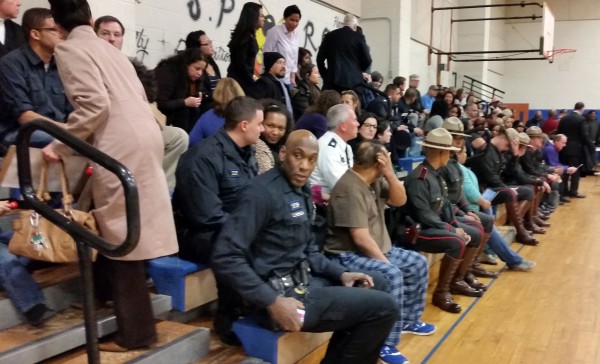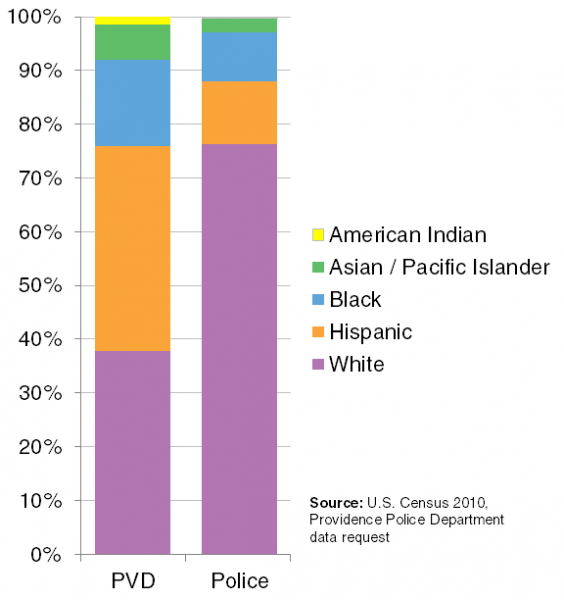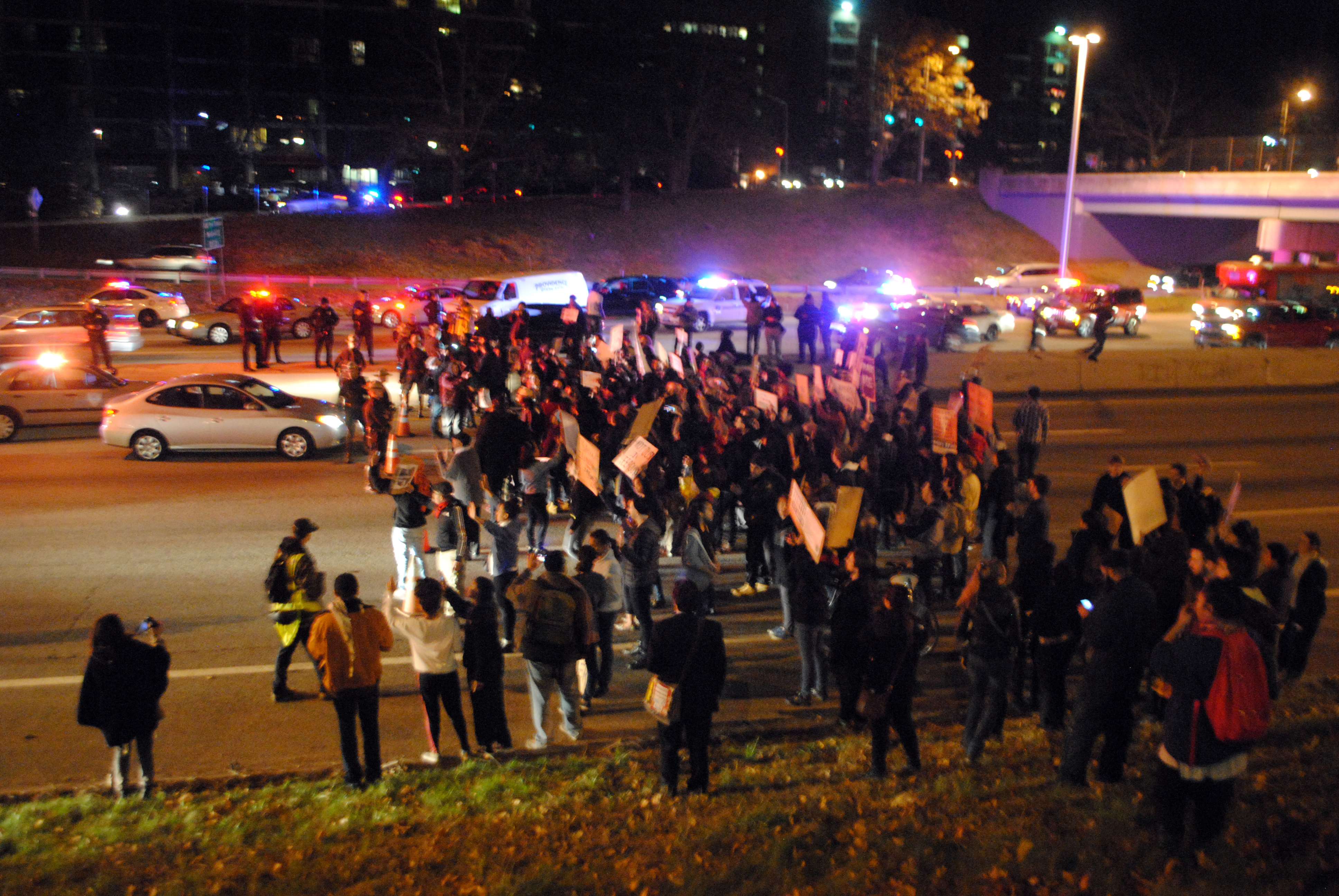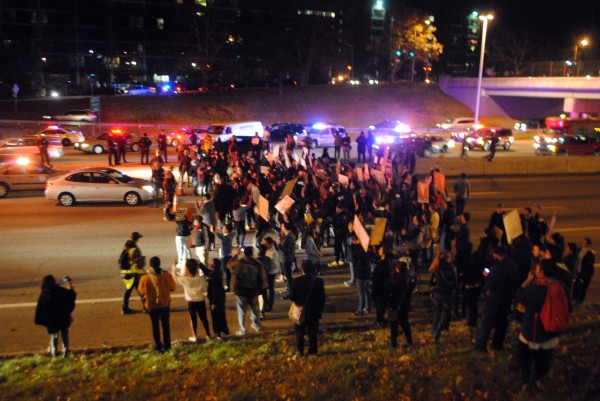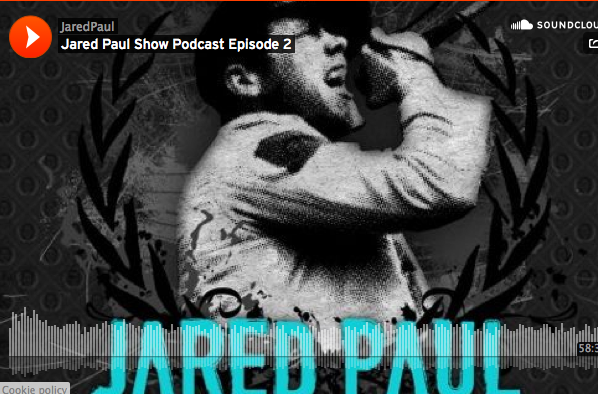“…Our white countrymen do not know us. They are strangers to our character, ignorant of our capacity, oblivious to our history and progress, and are misinformed as to the principles and ideas that control and guide us, as a people. The great mass of American citizens estimates us as being a characterless and purposeless people; and hence we hold up our heads, if at all, against the withering influence of a nation’s scorn and contempt.”
— Frederick Douglass
 David R. Carlin recently shared his life experience through his September 20th commentary in the Providence Journal, as a youth growing up in Pawtucket, Rhode Island in the 1950s and recounted what it was like to live in a tenement on Beverage Hill Avenue, with no hot water, and having to sacrifice having a car in order to pay for a sick sibling’s medical bills. Unfortunately too many Americans of all backgrounds have similar stories of struggle, and today the widening of gaps between the classes is a pervasive societal issue. I have to admit I had nowhere near as arduous a life growing up in Rhode Island. My siblings and I were born and raised in a family of color in Newport with two educated, hardworking and loving parents.
David R. Carlin recently shared his life experience through his September 20th commentary in the Providence Journal, as a youth growing up in Pawtucket, Rhode Island in the 1950s and recounted what it was like to live in a tenement on Beverage Hill Avenue, with no hot water, and having to sacrifice having a car in order to pay for a sick sibling’s medical bills. Unfortunately too many Americans of all backgrounds have similar stories of struggle, and today the widening of gaps between the classes is a pervasive societal issue. I have to admit I had nowhere near as arduous a life growing up in Rhode Island. My siblings and I were born and raised in a family of color in Newport with two educated, hardworking and loving parents.
Mr. Carlin recounted his experience as a youth without privilege to explain his belief that there is no “white privilege” in the greater American society. He contends that the conception he and other white Americans have been afforded certain opportunities solely based on their race, and that black Americans have been denied such opportunities, is mistaken. The whole of his essay can be summed up as this: white privilege is an excuse and black American’s are solely responsible for their current destructive experience and station in society.
As Mr. Carlin explains “if the average black is worse off than the average white in almost every category of well-being — health, wealth, income, education, high culture, gainful employment, etc. — this is chiefly because of an appallingly dysfunctional subculture that is pervasive among the black lower classes.”
What Mr. Carlin fails to understand is that white privilege is not explicit, and when you are the beneficiary, it is even harder to recognize its existence. Studies have repeatedly demonstrated that drug use rates between white and black users are incredibly comparable. Yet while black people make up only 14 percent of regular drug users, they account for 37 percent of those arrested (via Human Rights Watch). Jeffrey Fagan, a Columbia University Law professor found that under New York’s controversial Stop & Frisk policy between 2004 and 2009 less than 1 perncet of stops recovered weapons, and of those found they were more frequently recovered from white people. But still, black people were disproportionately stopped as compared to whites and were 14 percent more likely to be subjected to force. It should not be lost on anyone as to why Stop & Frisk was recently ruled unconstitutional.
These are just some of the many data points which corroborate the fact that the United States has always had and continues to perpetuate a very real and dangerous problem when it comes to the lack of equality between the races. A fantastic source is Michelle Alexander’s The New Jim Crow, which details the history of our current criminal justice and prison systems and how they function to continually oppress Black and Brown citizens of this country.
I think the unfortunate reality is that people like Mr. Carlin too often are misinformed on what white privilege actually is, and also severely lack day to day contact with people of color.
Someone who denies white privilege is not necessarily racist, they are just ignorant to the reality we live in due to the privilege bubble in which they conveniently exist. So in the spirit of educating over arguing, I have made a quick reference list for Mr. Carlin and the others in denial so they too can be better informed and therefore, better equipped to discuss race in America.
- White privilege is being sentenced to rehab for drug use because you’re “sick” and need to be treated, not incarcerated because you are deemed inherently dangerous.
- White privilege is reminding people to always remember Pearl Harbor, The Alamo, The Boston Tea Party and both World Wars, but then asking why Black people can’t seem to put slavery behind them.
- White privilege is not having people ask you why you “speak so well”.
- White privilege is no one assumes your success in education or your career is due to athletic scholarships or affirmative action.
- White privilege is sharing an opinion and not having it used as representative of all the other members of your race
- White privilege is not having the justice system routinely incarcerate the men of your race at astronomically disproportionate rates for decades and therefore crippling your family structure for generations.
- White privilege is having an interaction with law enforcement and being able to walk away with your life.
- White privilege is David Carlin getting to tell an entire group of people that their centuries long struggle due to systematic social and political disenfranchisement is essentially their fault and their problem alone, and certainly not a problem that the greater society should tackle together.
Unfortunately it is the Carlins, Carsons and Trumps of the world that perpetuate the ongoing racial bias that divides our nation. If more time and effort was spent actually engaging people from the disenfranchised communities and trying to find a common goal of equality among races and classes, rather than finger pointing and victim blaming, we might actually have a chance at progressing as a society and as a human race. In 2015 it is terrifying to see how little has actually changed for black and brown people in America. What has changed is how the injustices are perpetuated and the true intentions camouflaged behind voting rights restrictions, public policy and policing.
What we cannot allow to go unnoticed is when a person abandons scholarship for rhetoric and then tries to pass the latter off as the former. The real issue here is that black and brown people in America are largely invisible to most whites. Like Mr. Carlin’s opinion piece, they talk about our lives, history and culture in a second person narrative, with little or no personal interactions or observations to validate their viewpoints. Today more than ever, there needs to be more sound discussions on how to move forward together; black, brown and white, and less of the guilt ridden, victim blaming that only serves to further divide us.

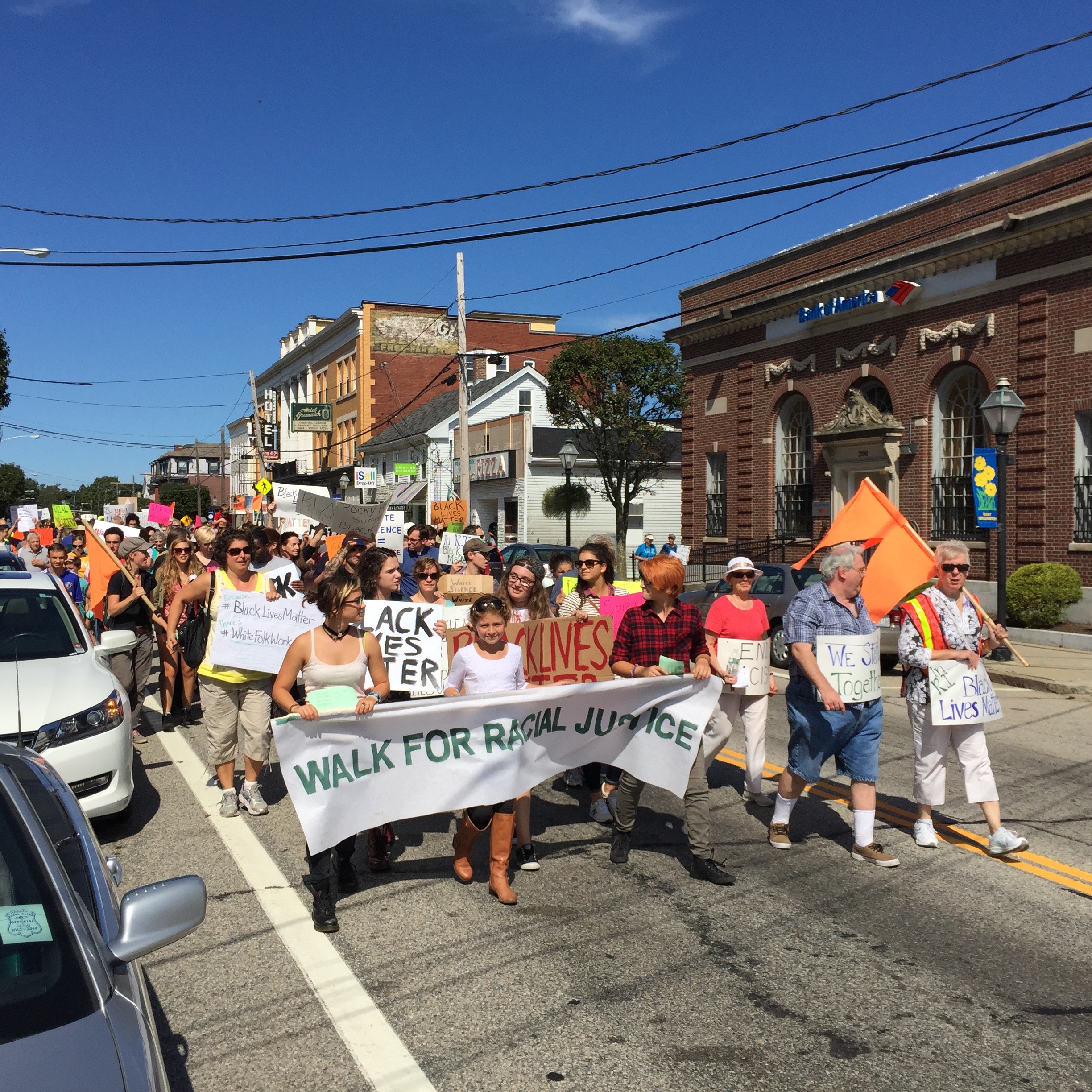
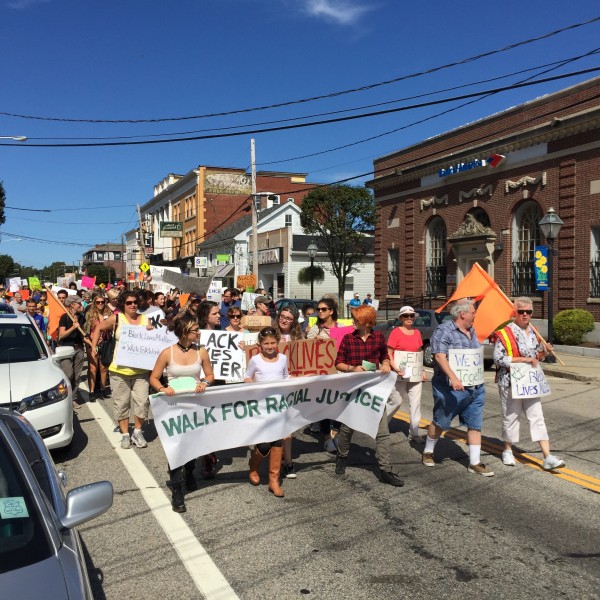
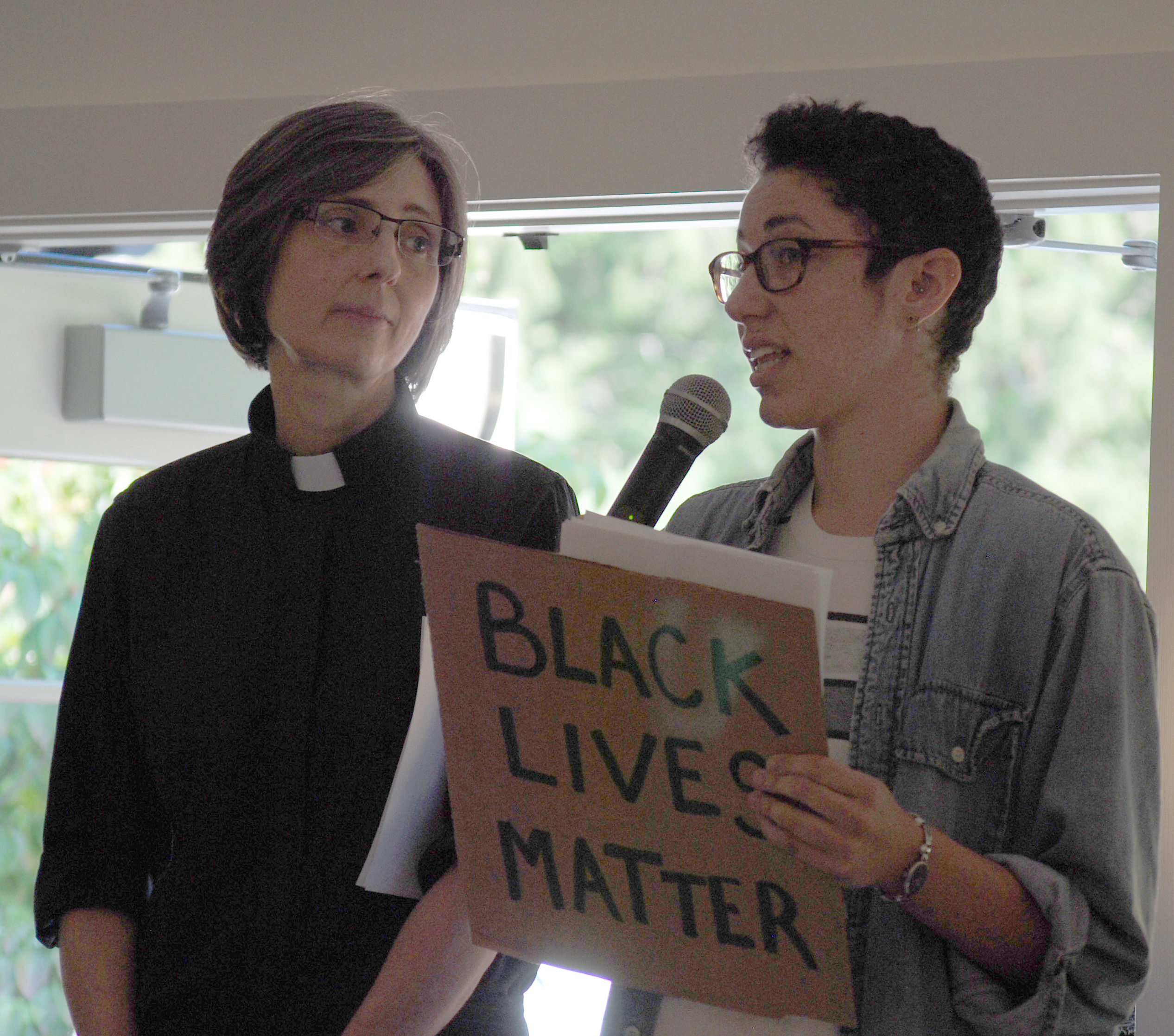
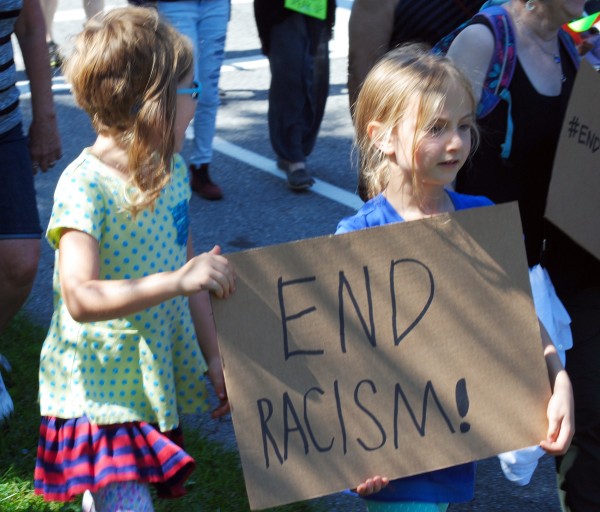 Nearly 200 people turned out at the Westminster Unitarian Church for a Black Lives Matter march i
Nearly 200 people turned out at the Westminster Unitarian Church for a Black Lives Matter march i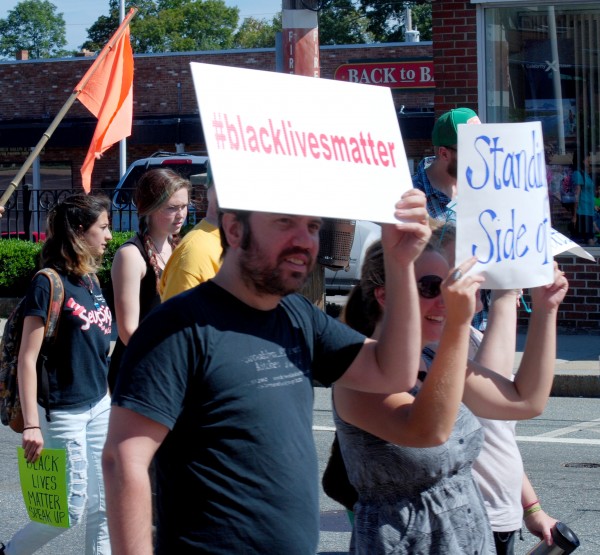
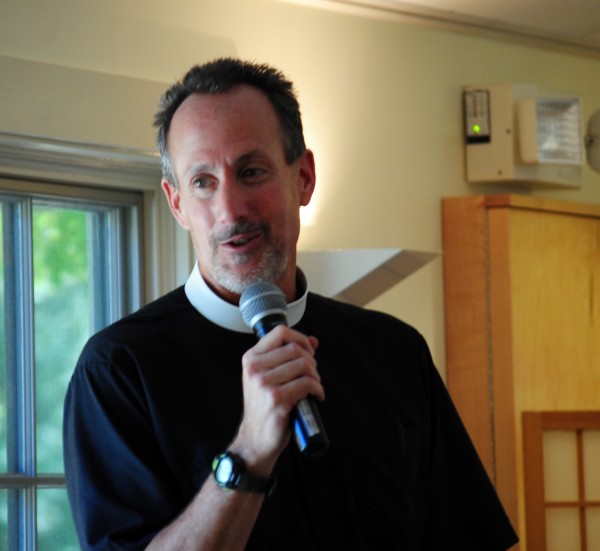
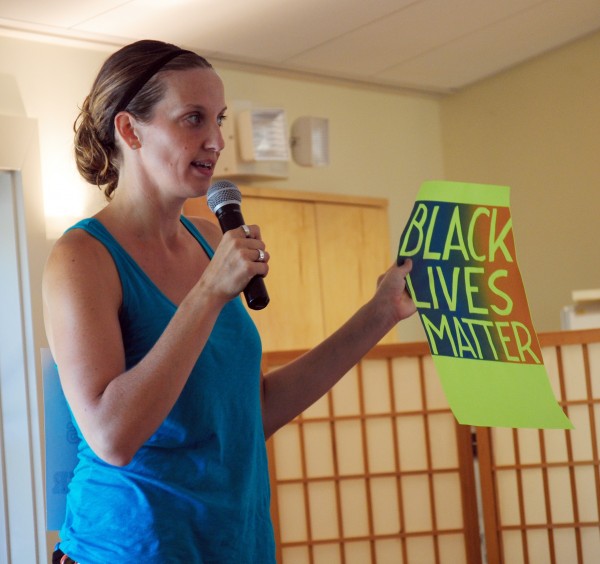
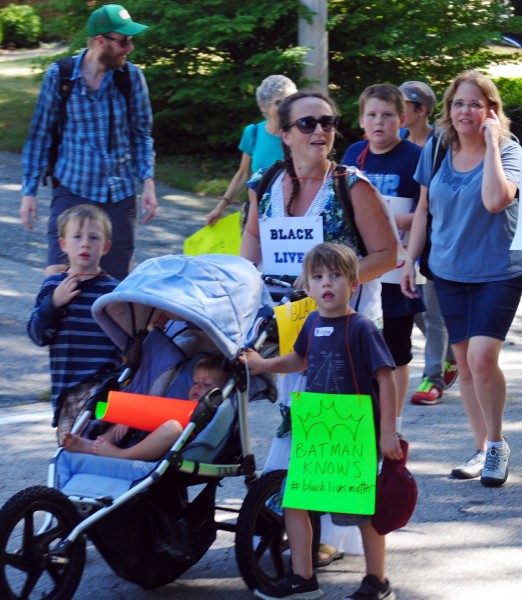
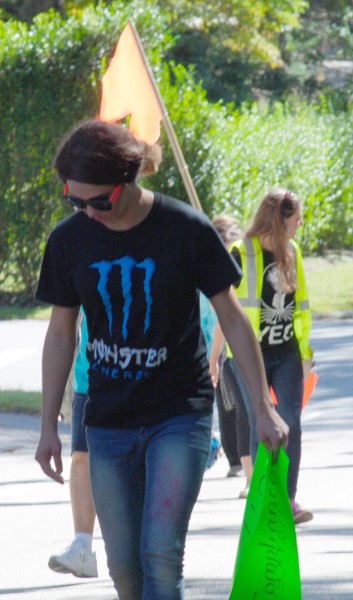
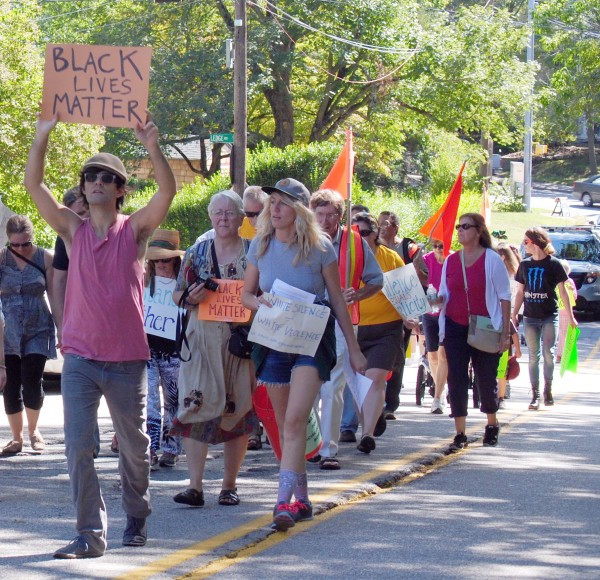
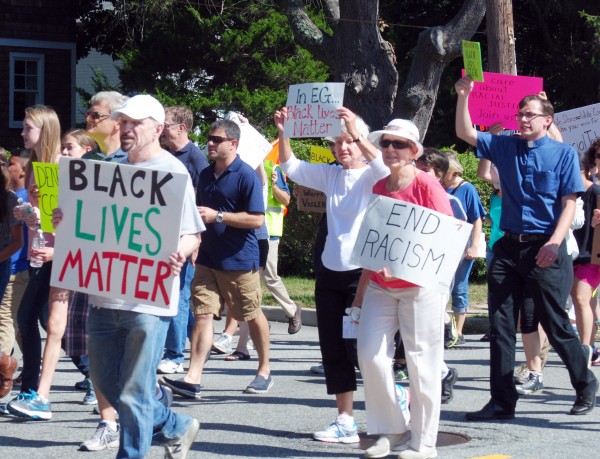
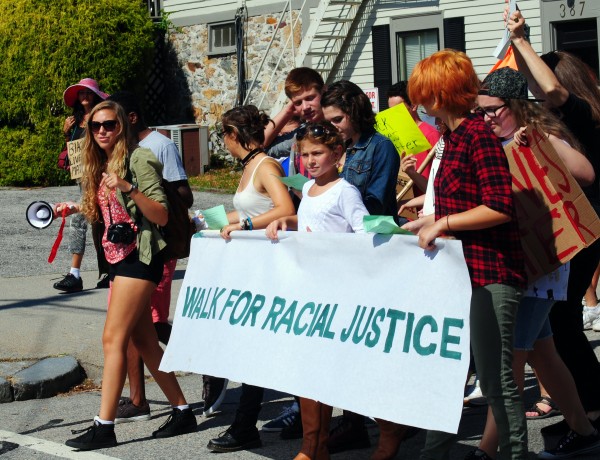
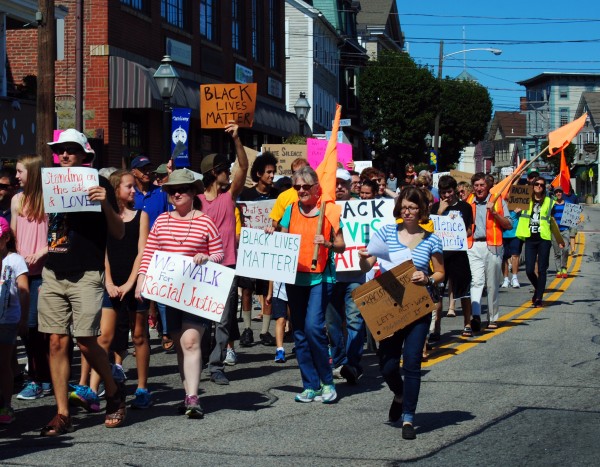
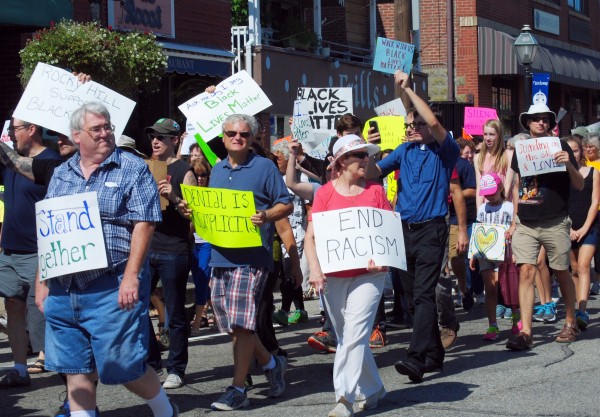
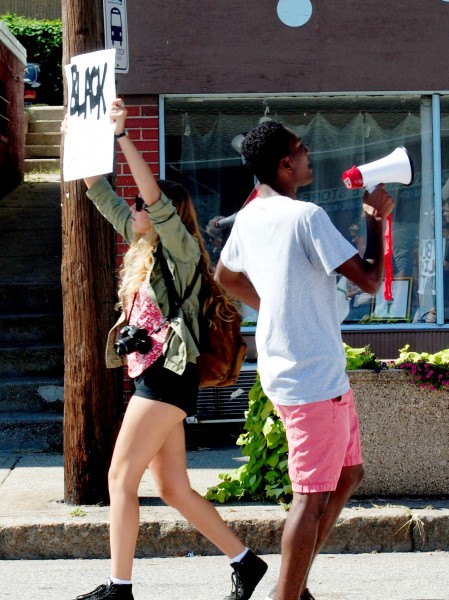
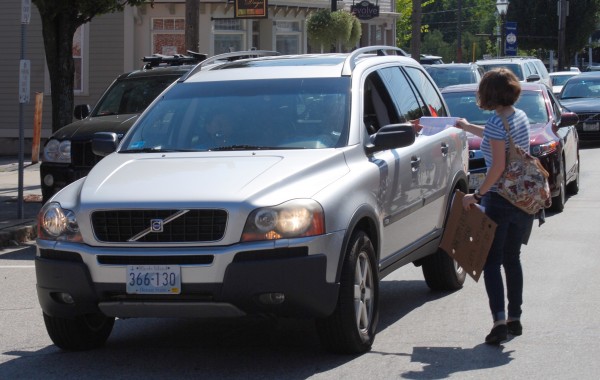
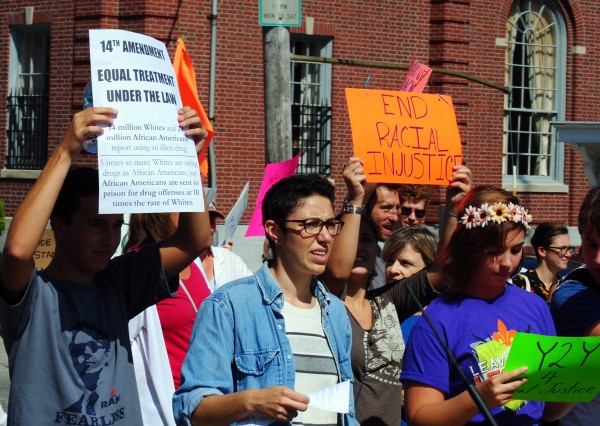
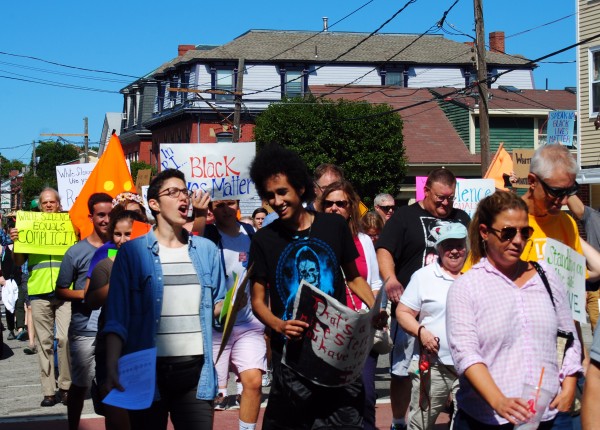
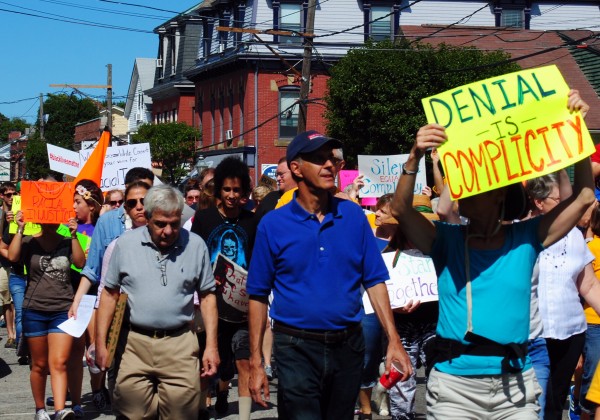
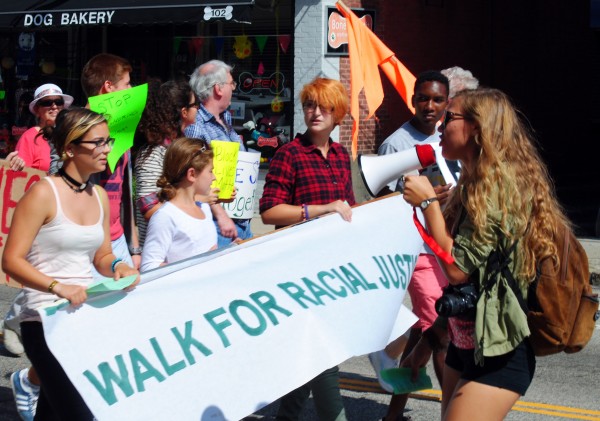
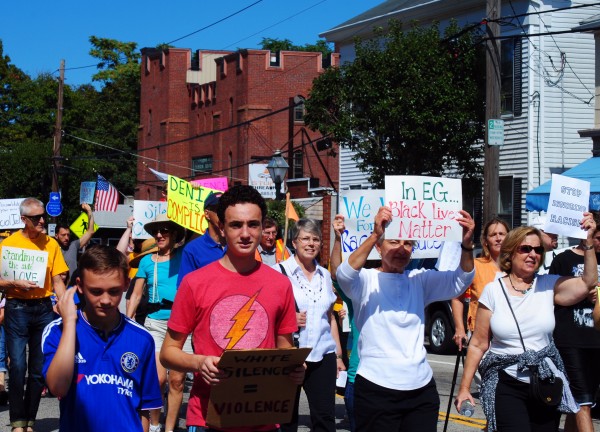
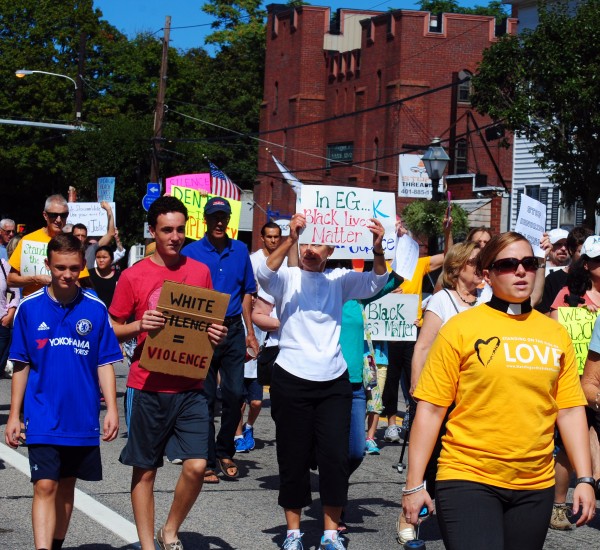
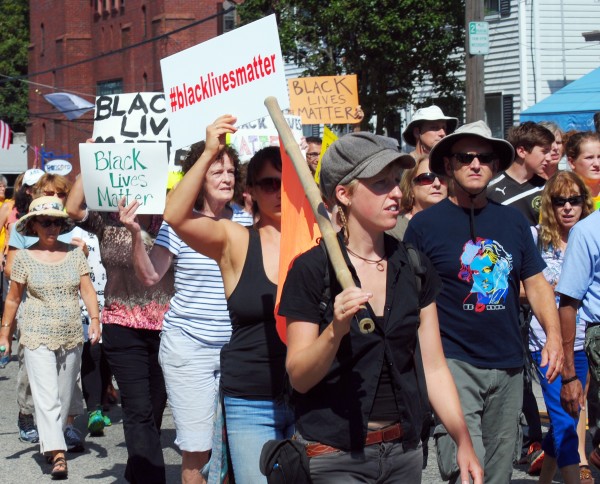
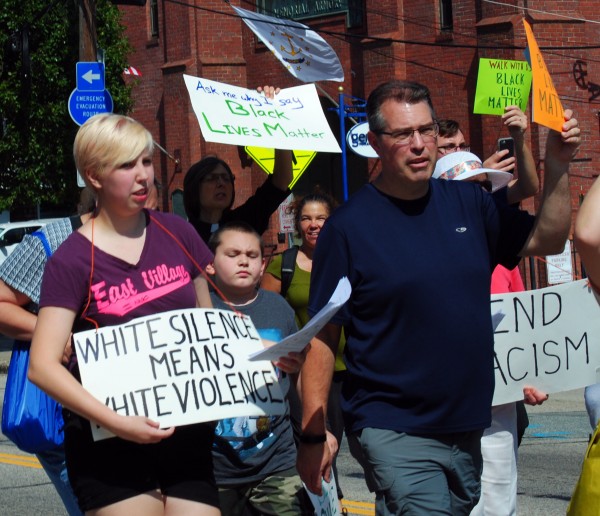
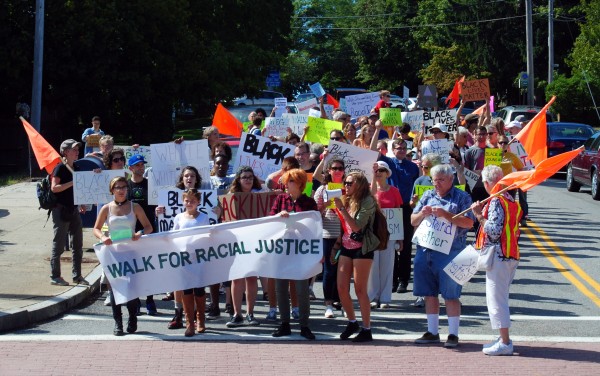
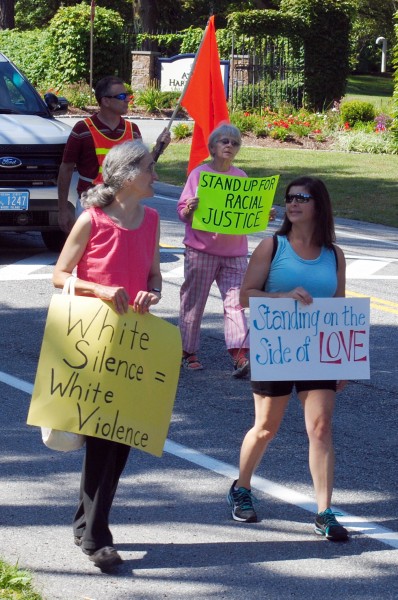
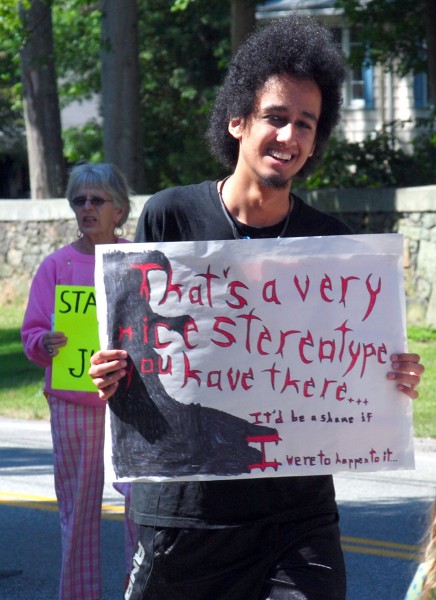
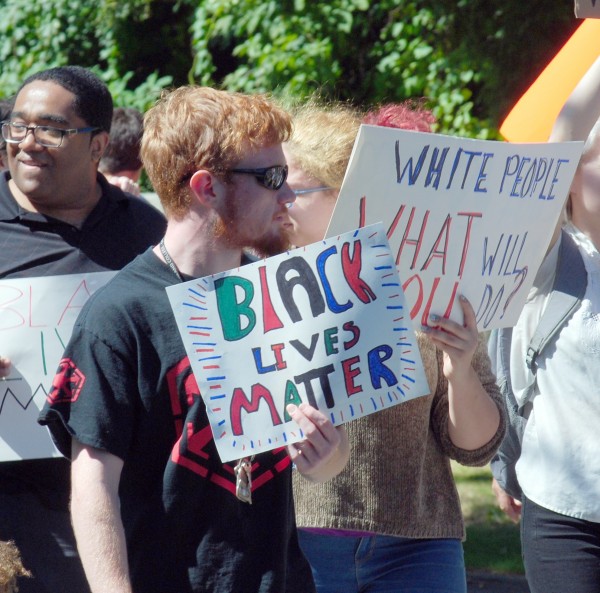
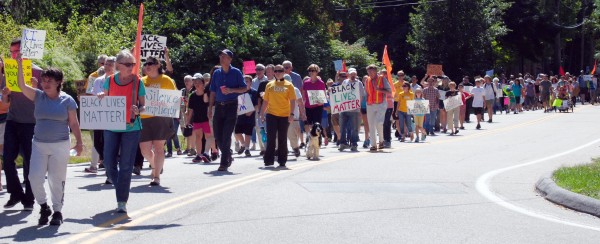
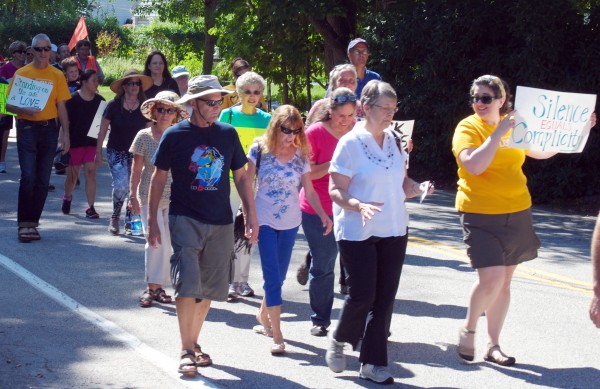
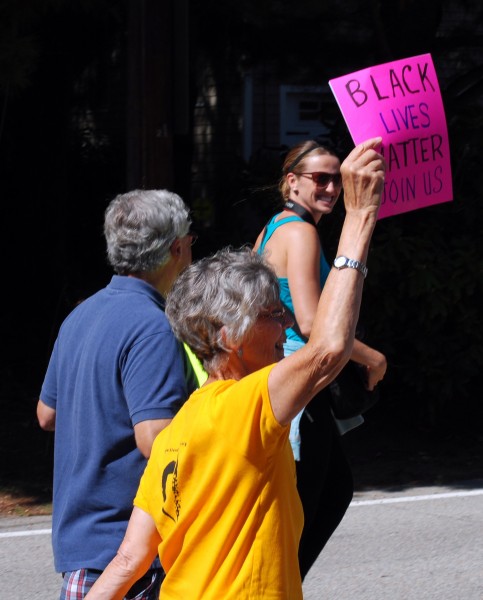
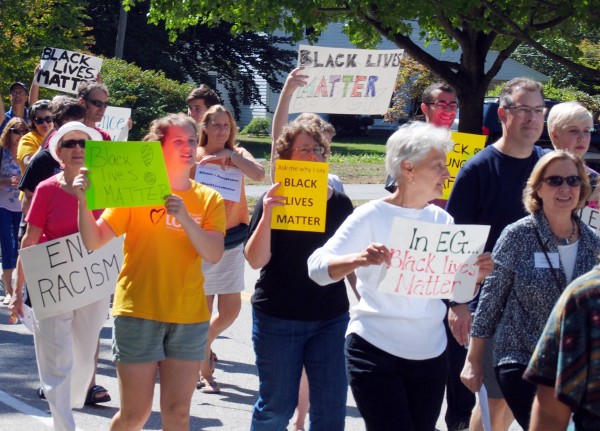
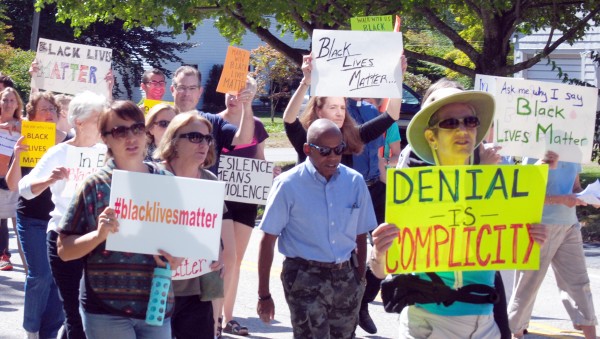
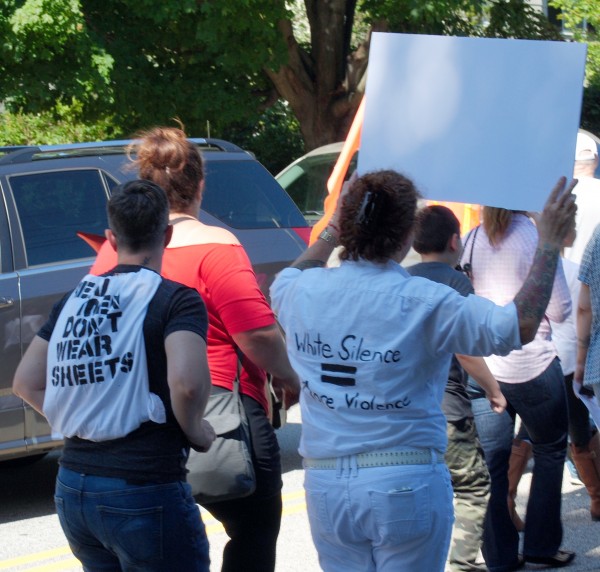
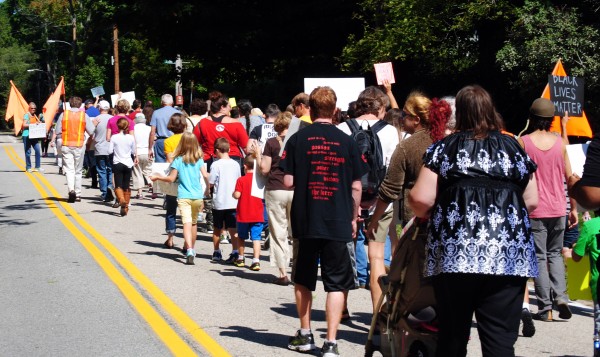
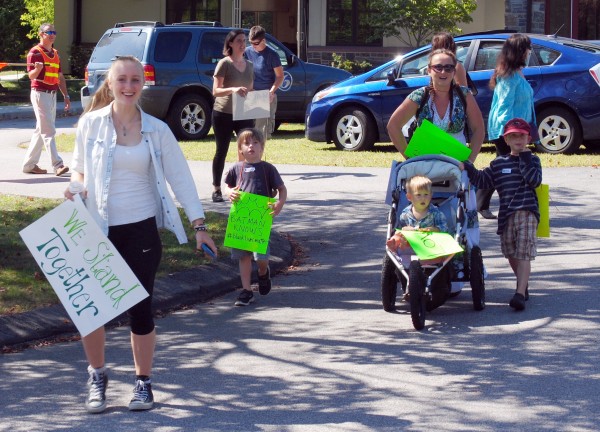
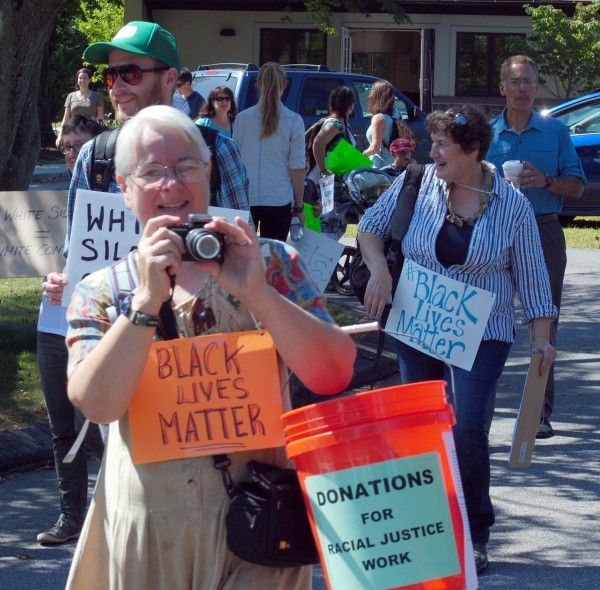
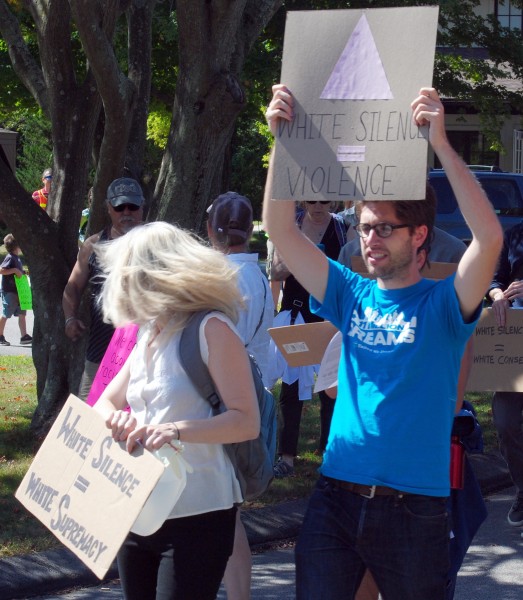
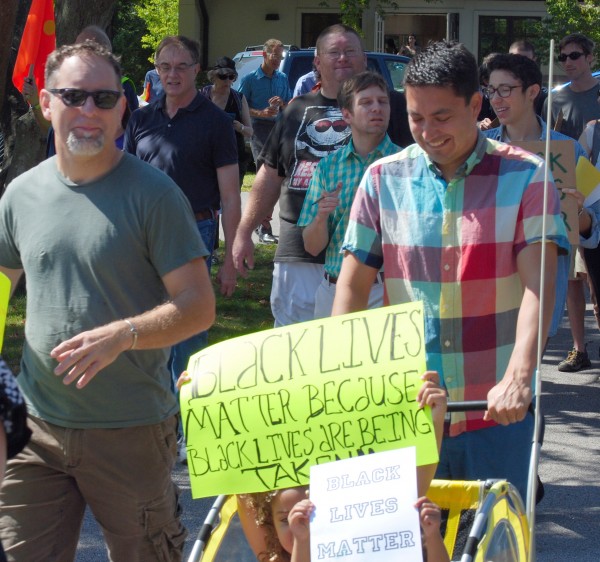
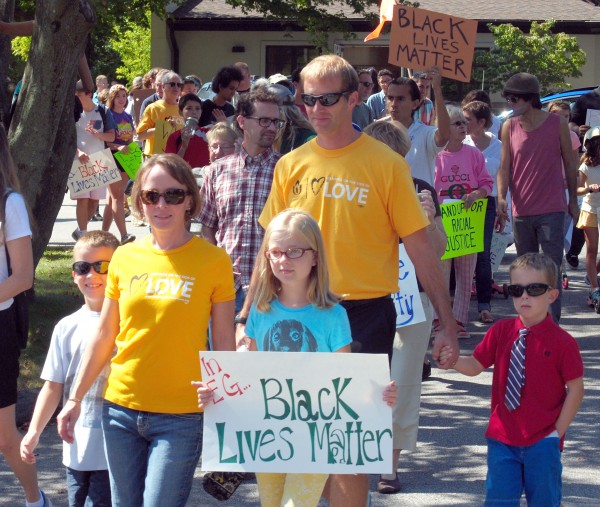
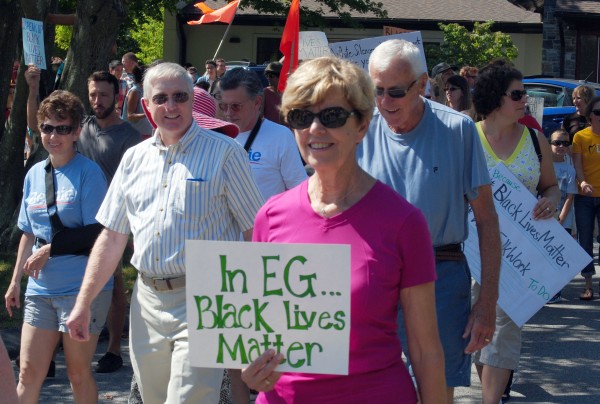
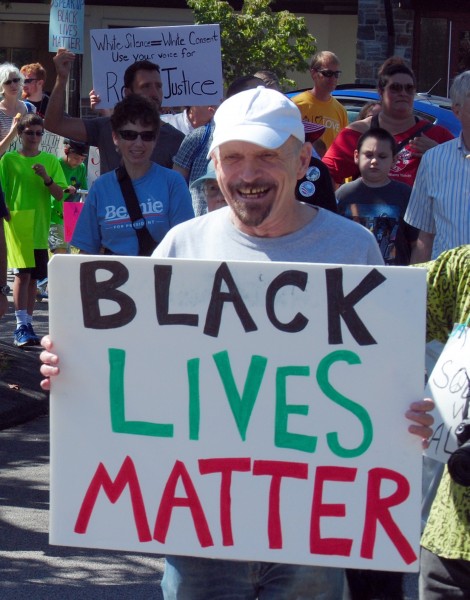
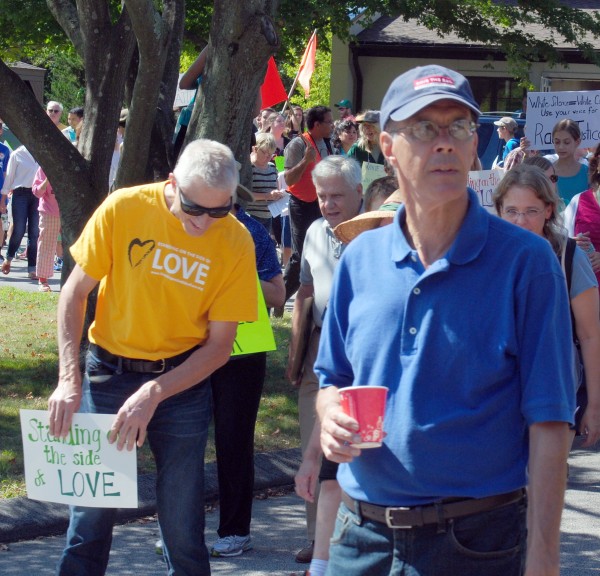
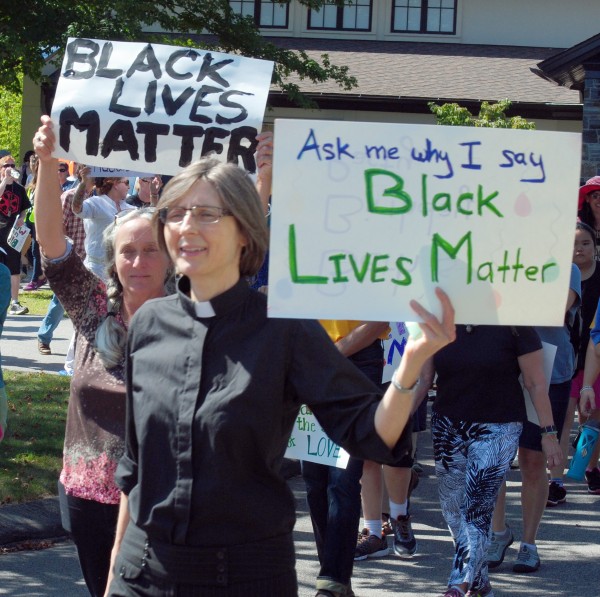
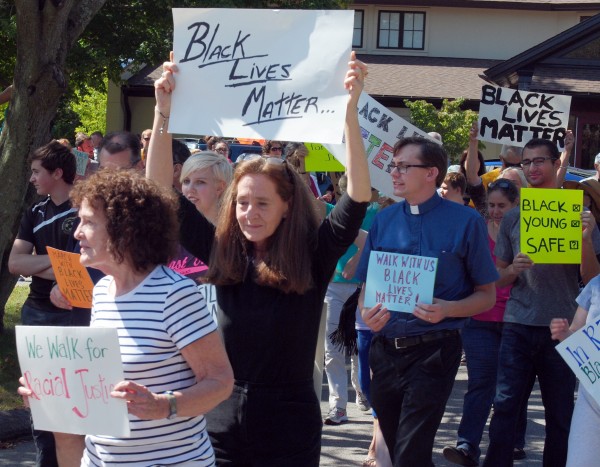
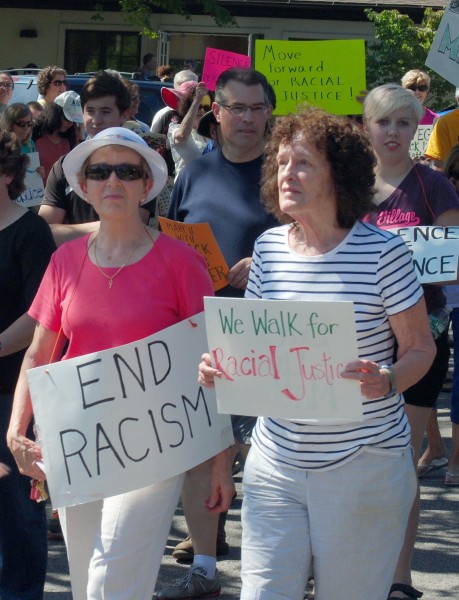
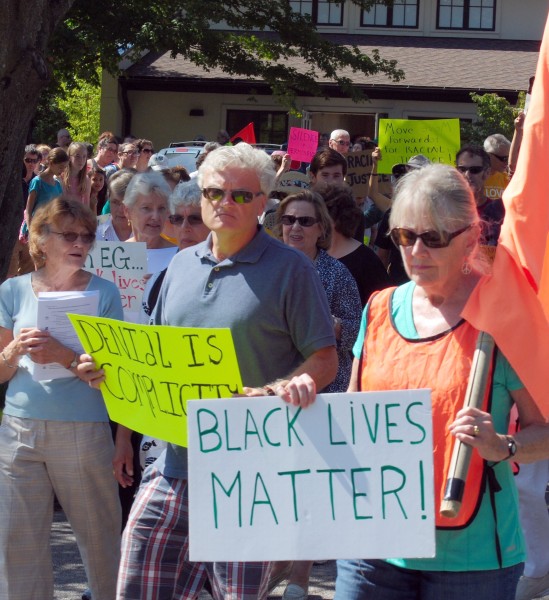
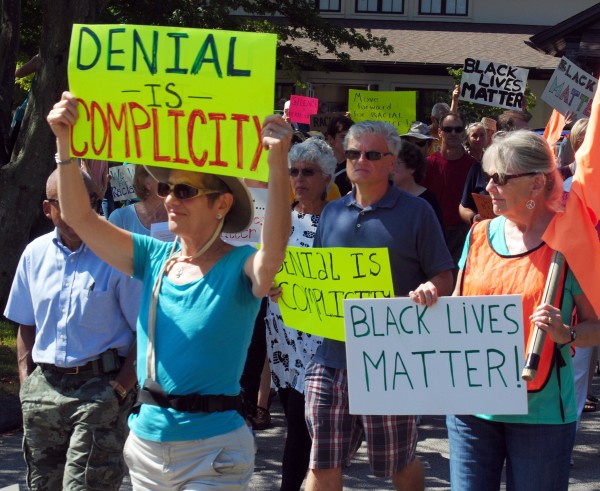
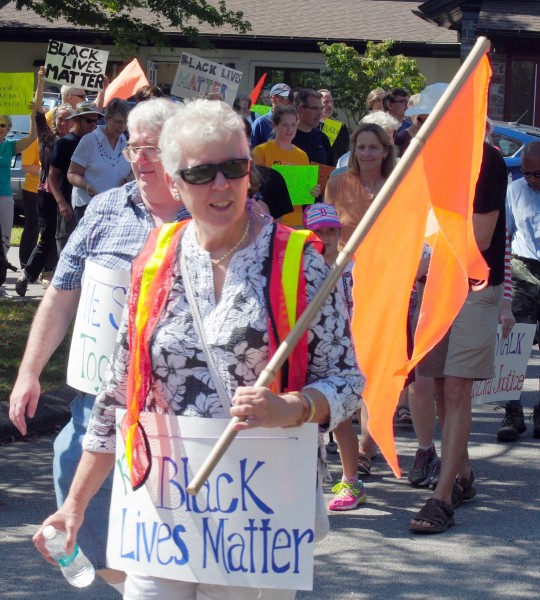
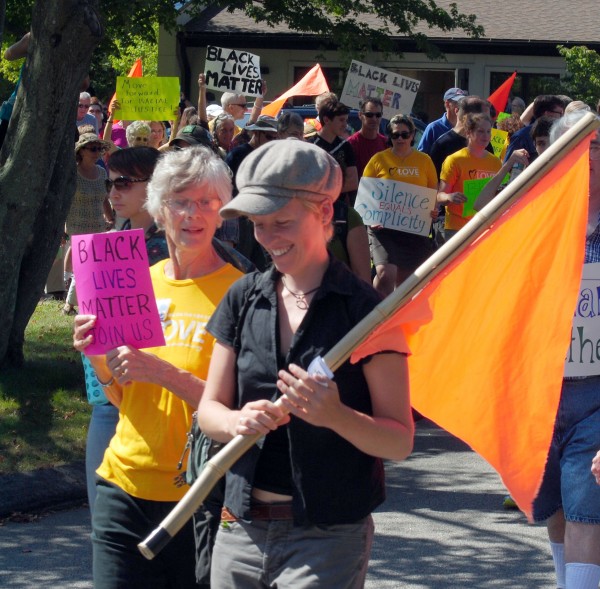
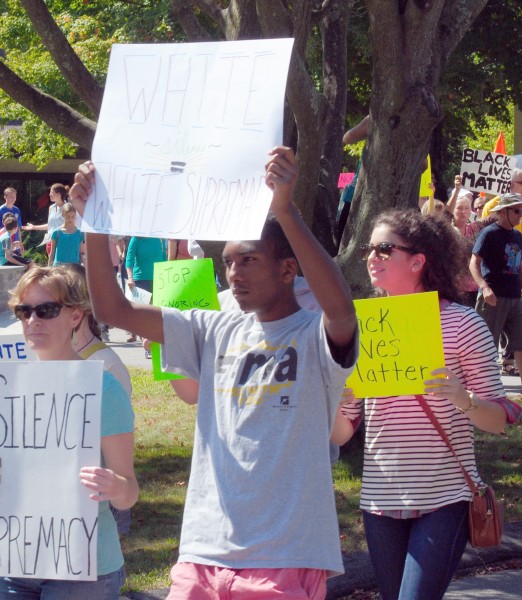
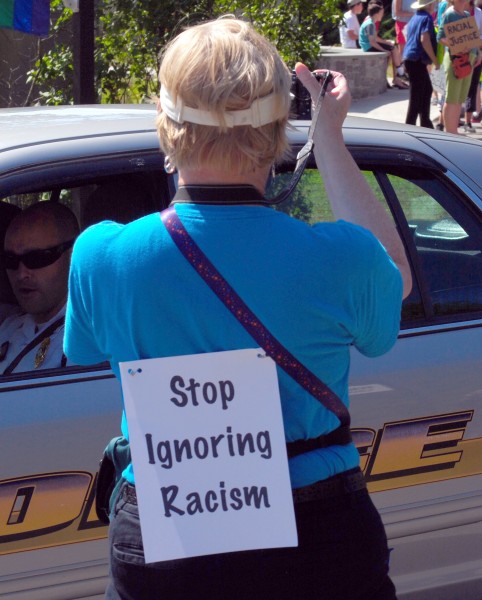
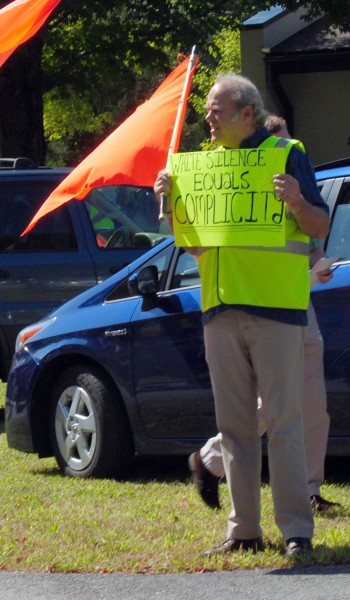
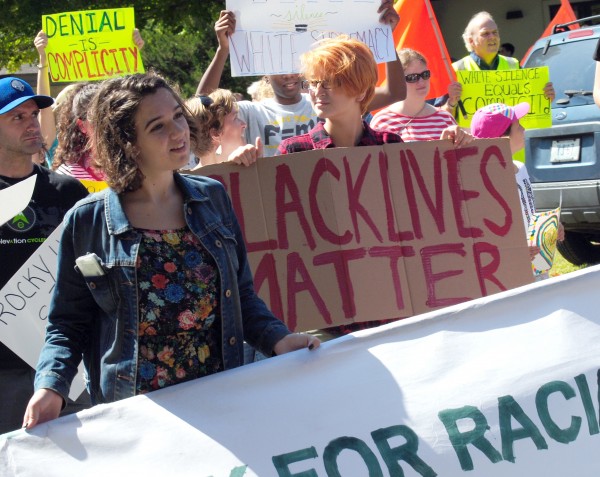
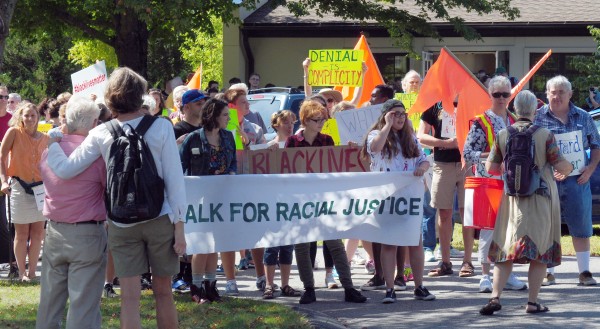
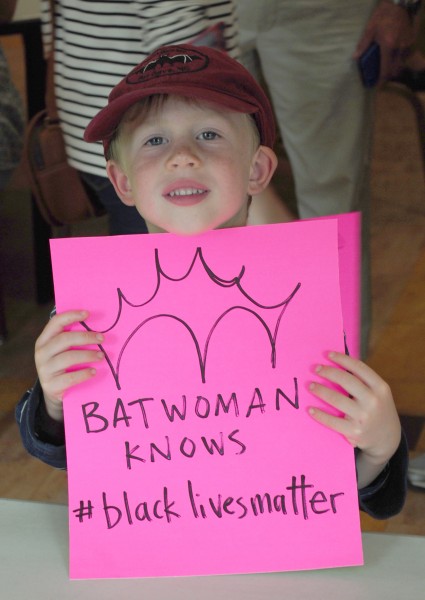
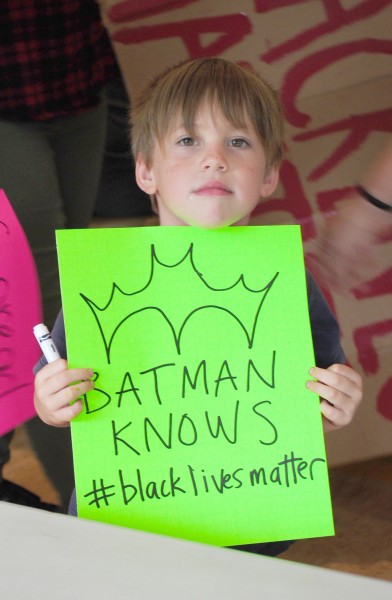

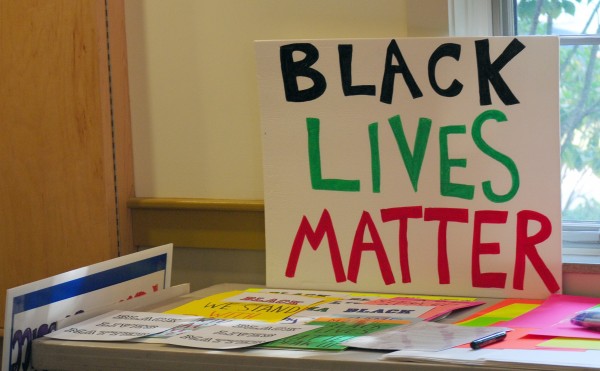
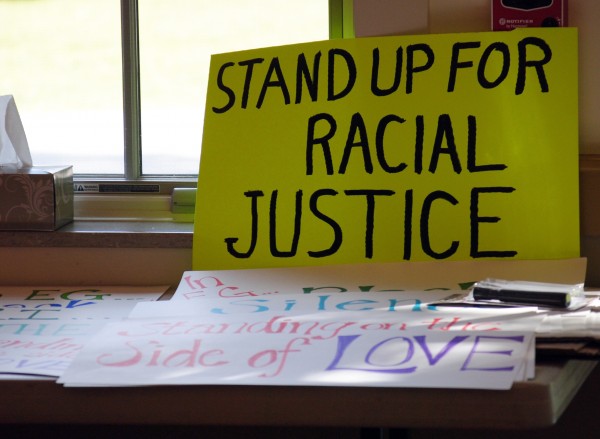
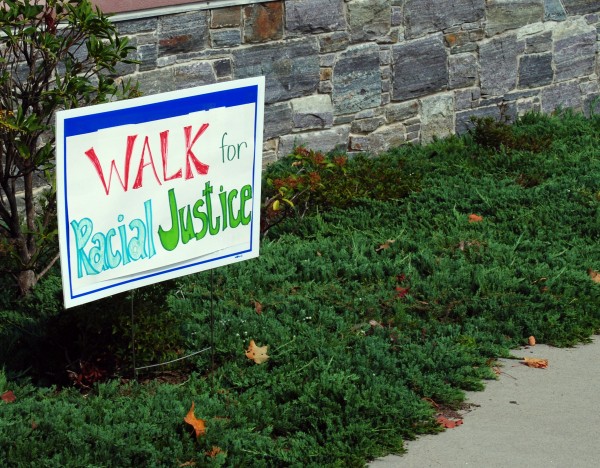

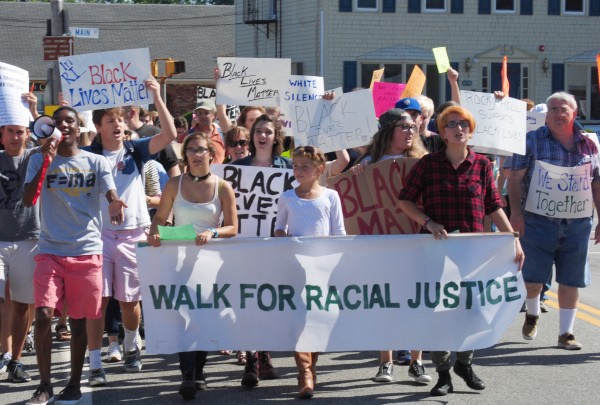
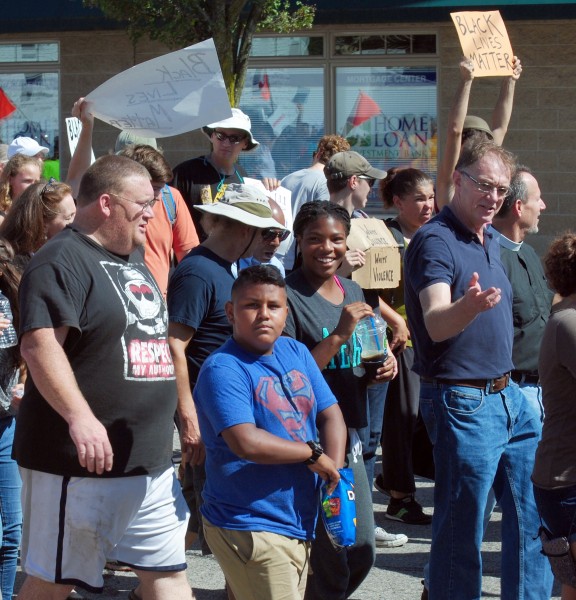
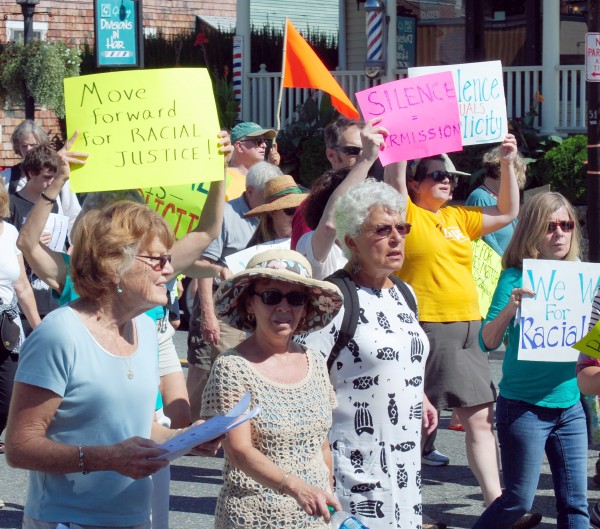
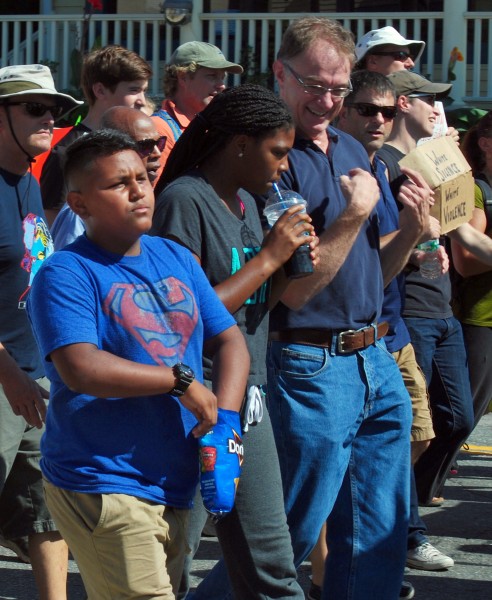
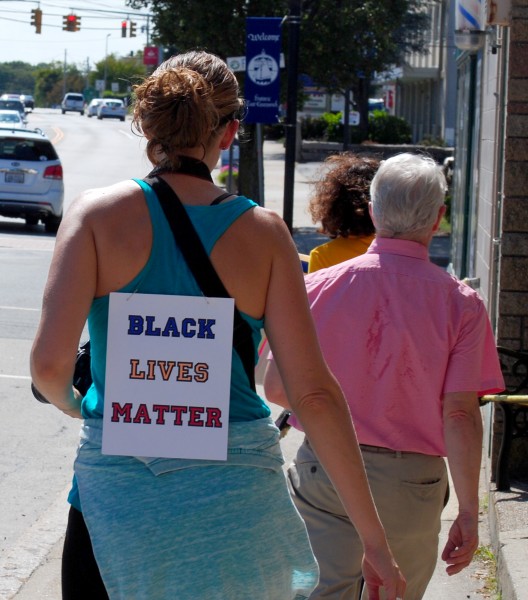

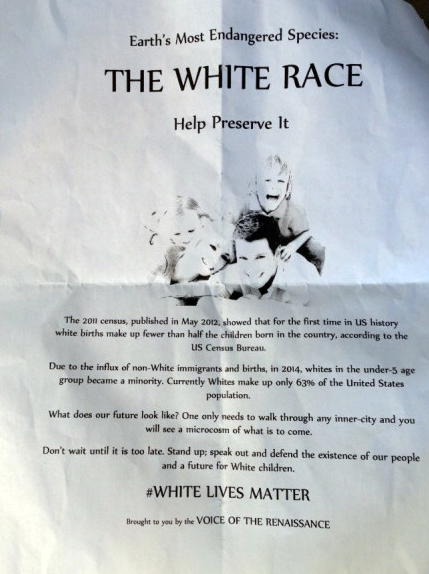
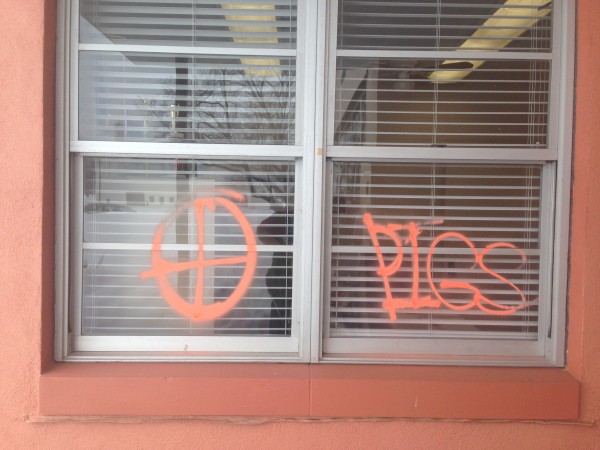
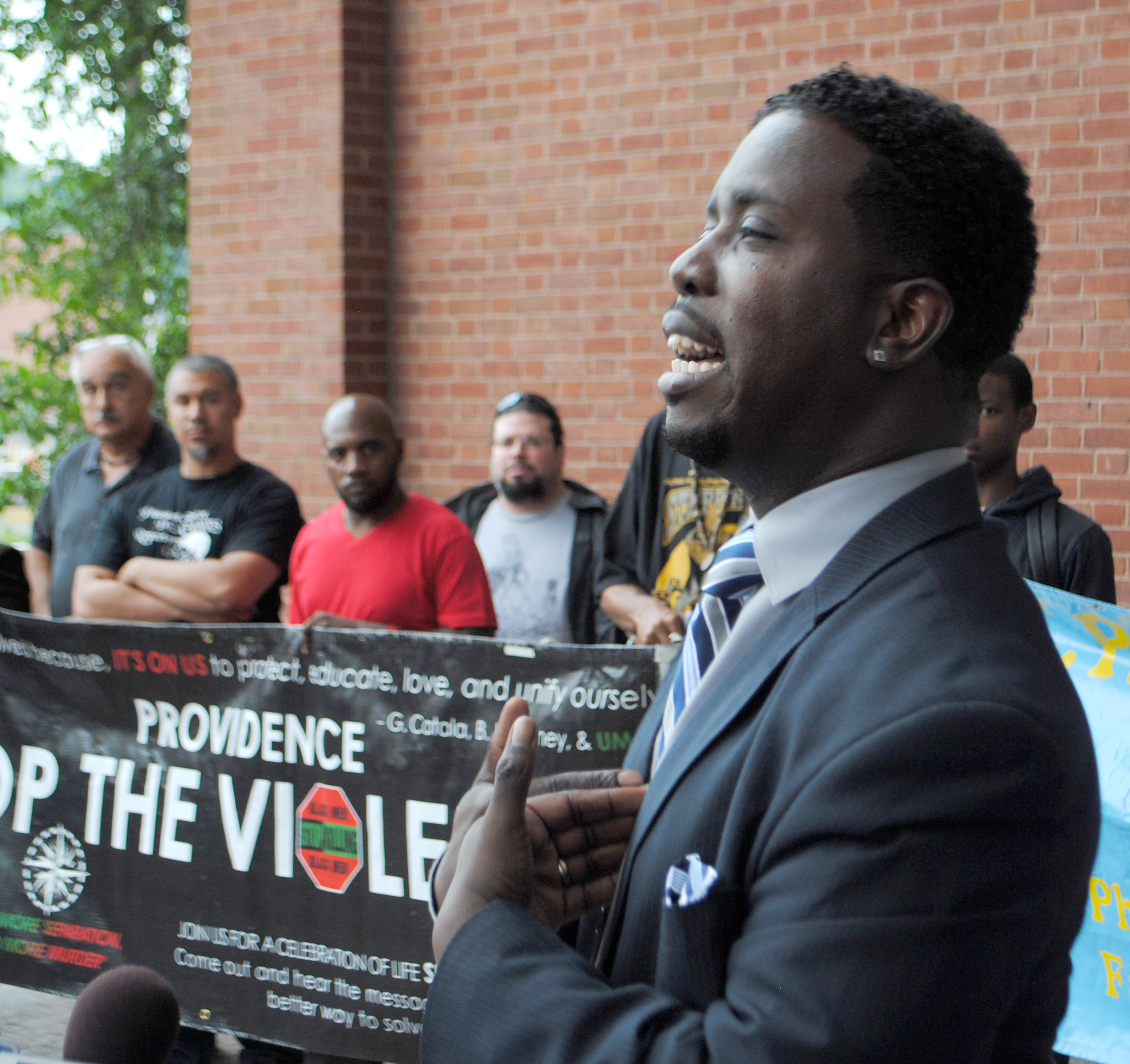
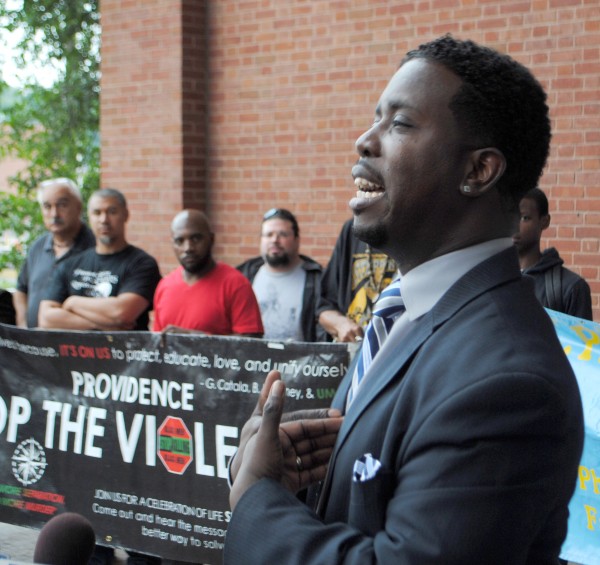
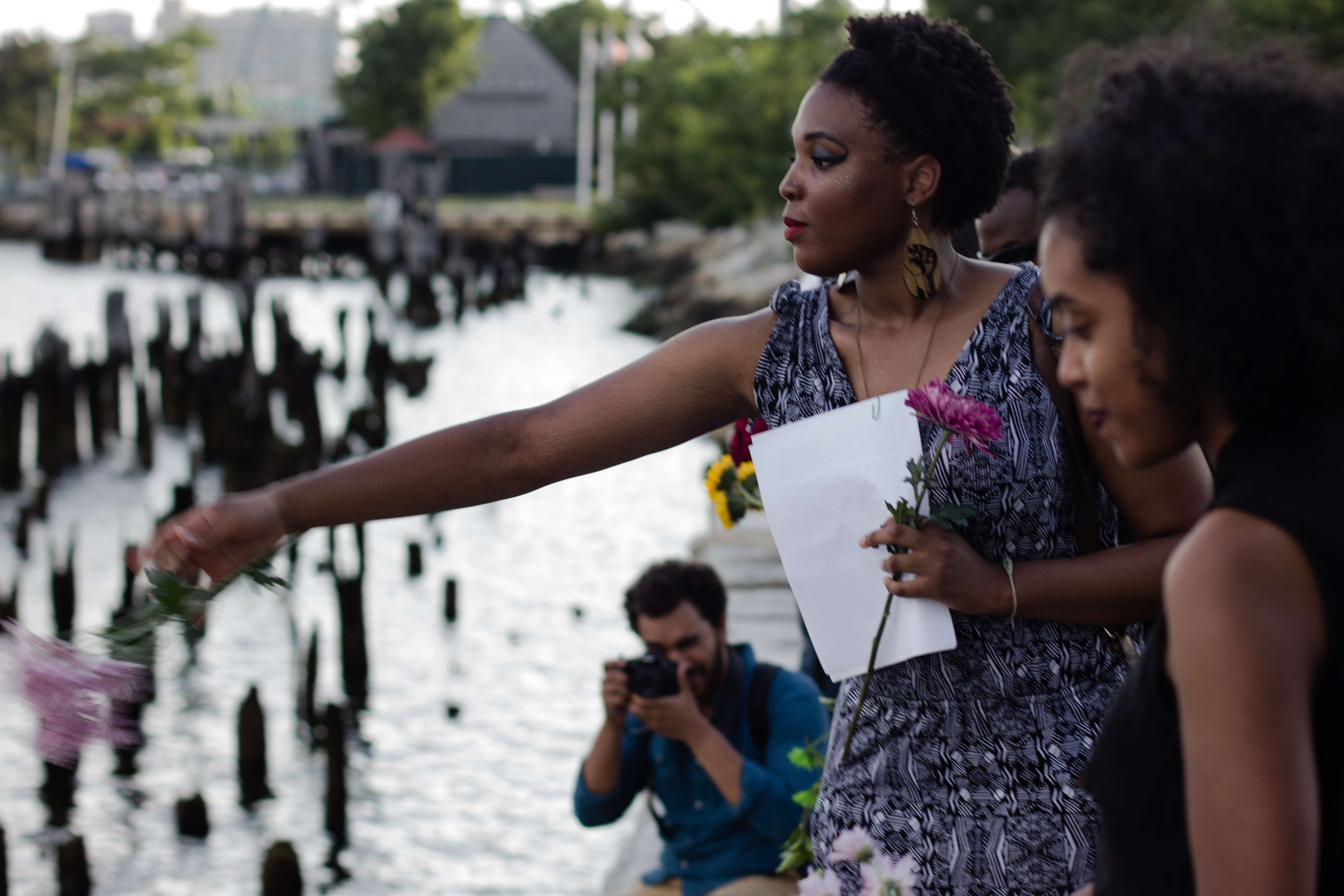
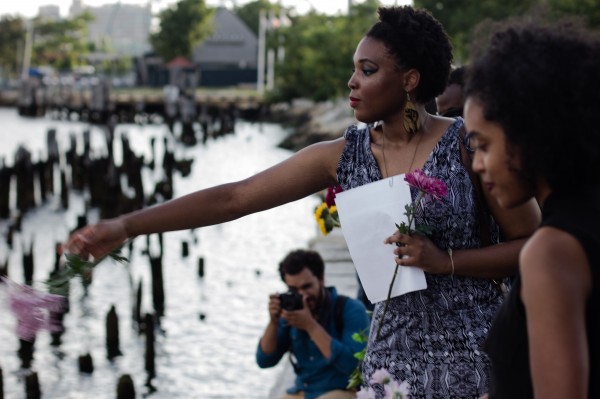
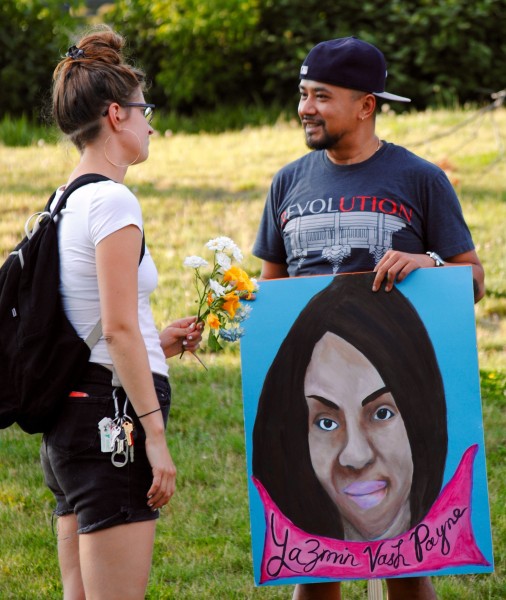
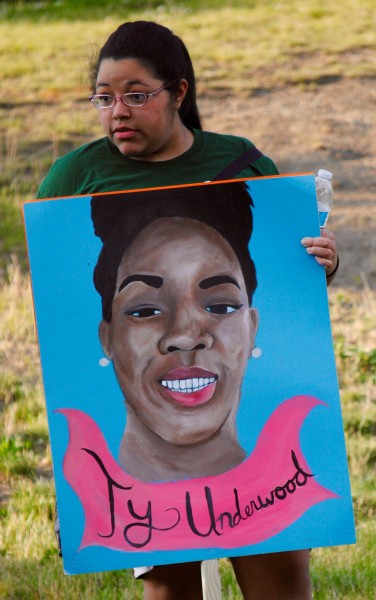
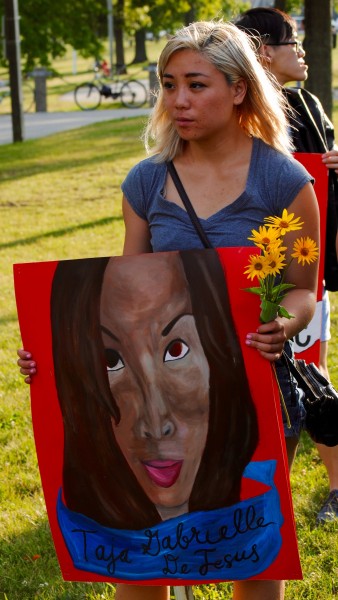
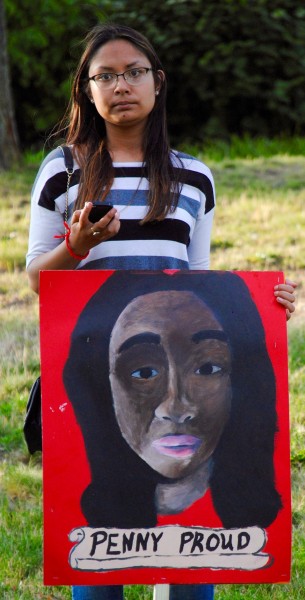
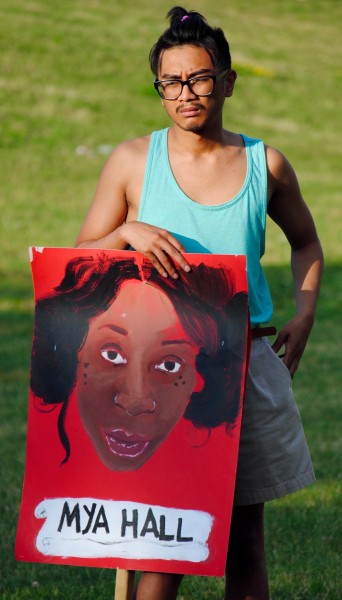
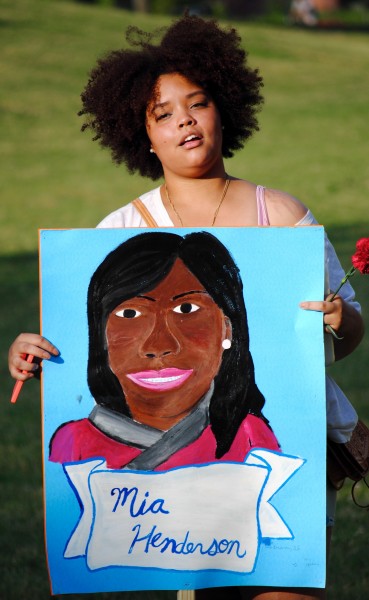

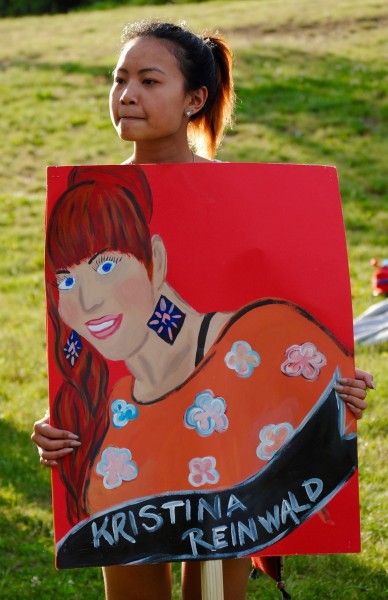
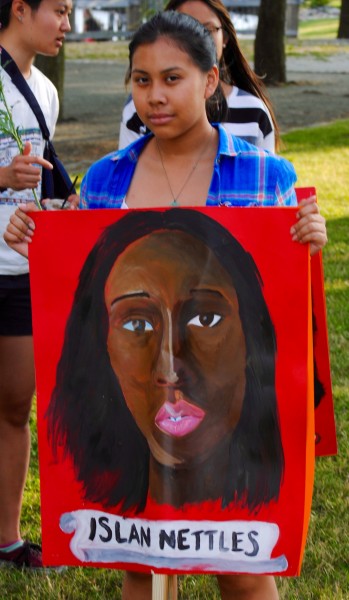
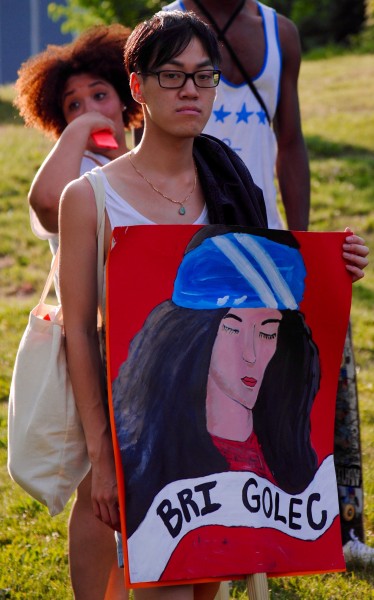
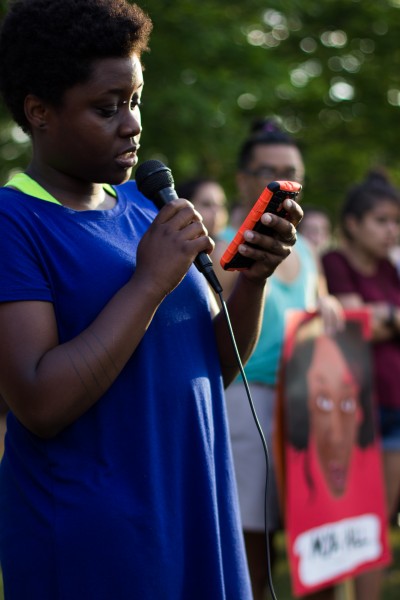
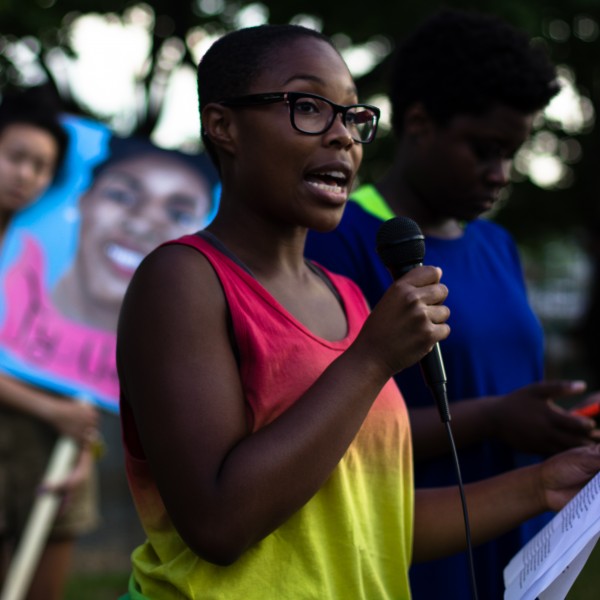
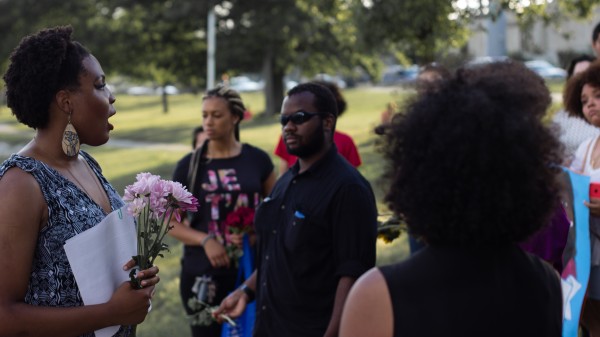
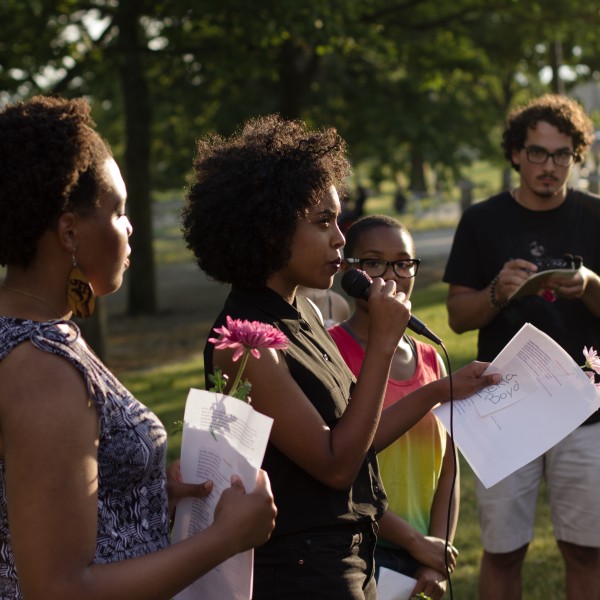
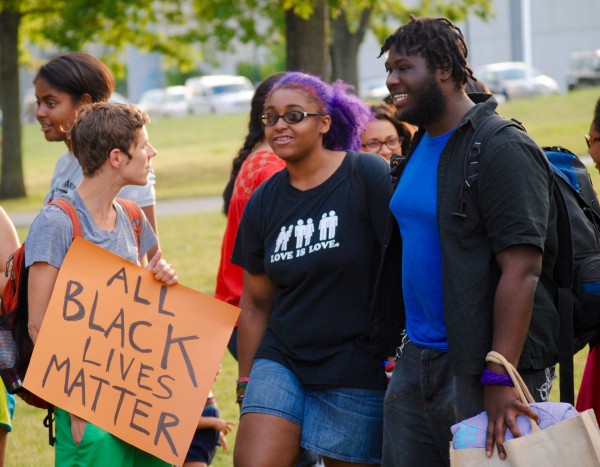
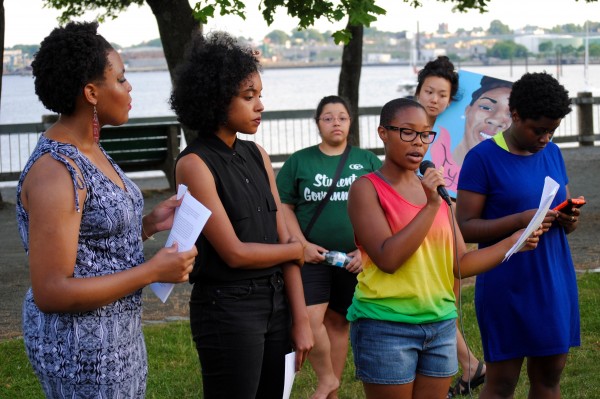
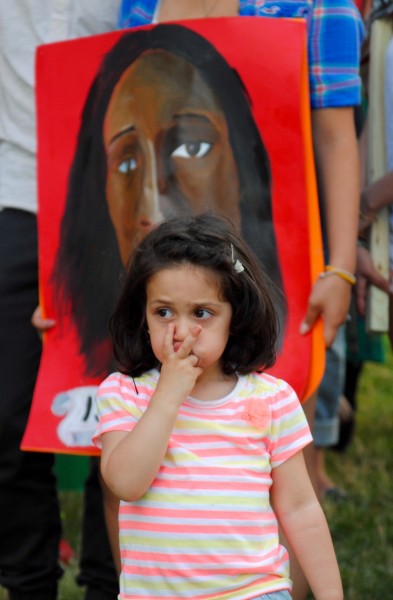
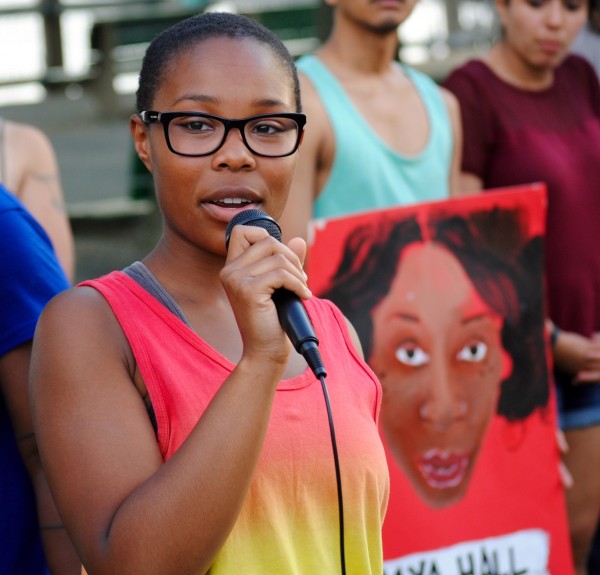
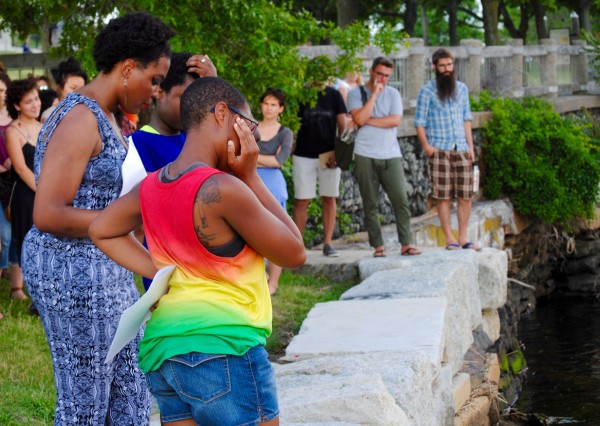

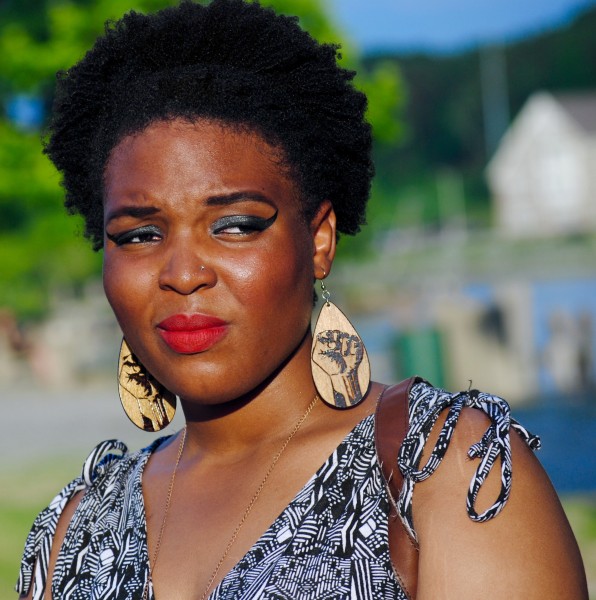
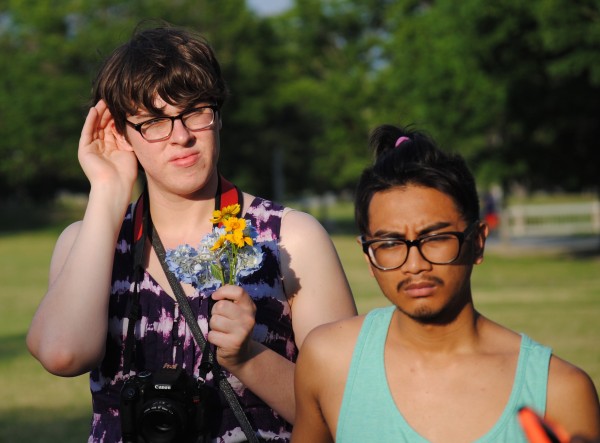
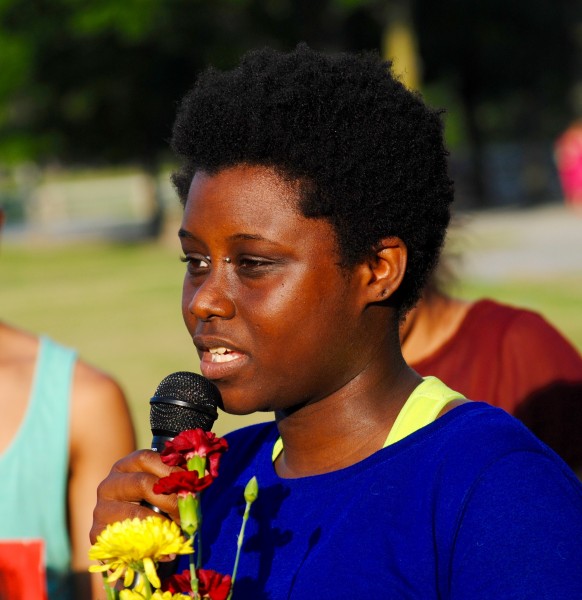
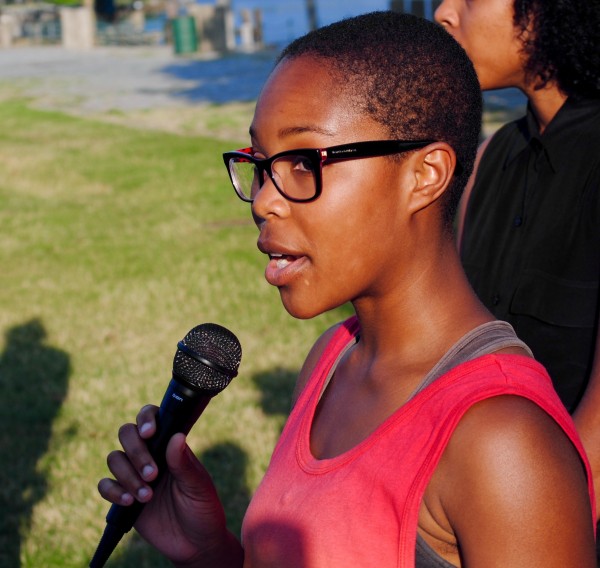
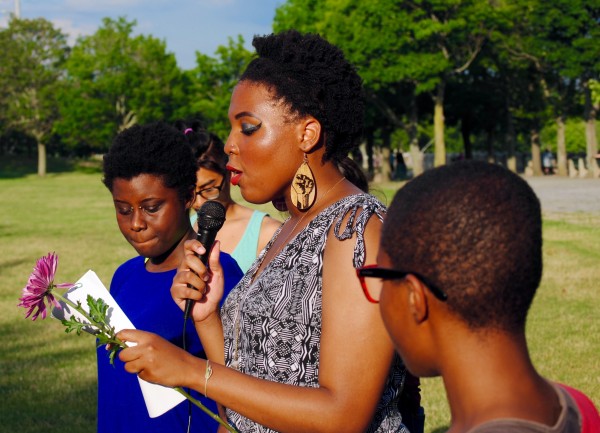
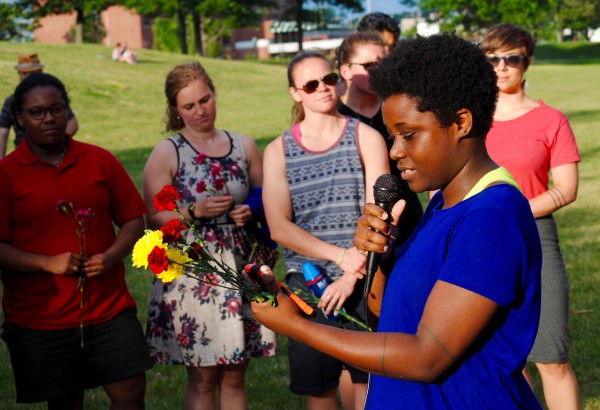
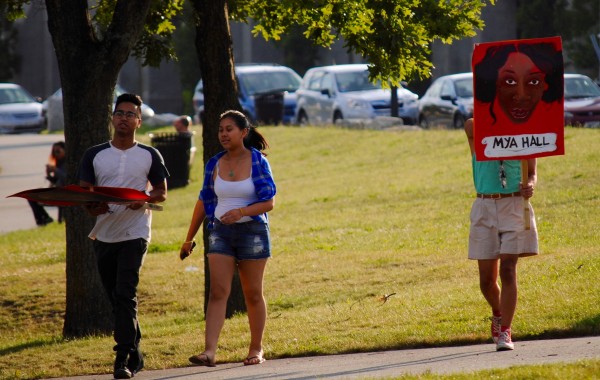

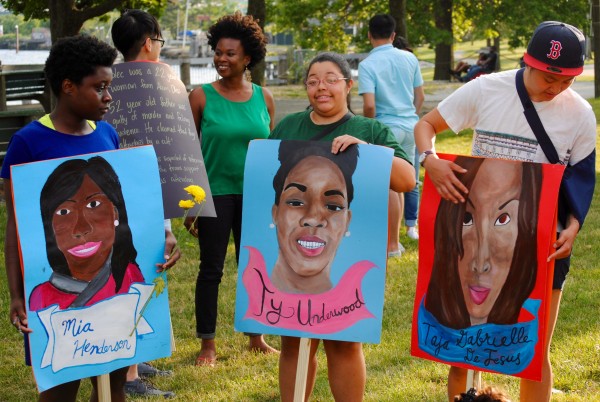
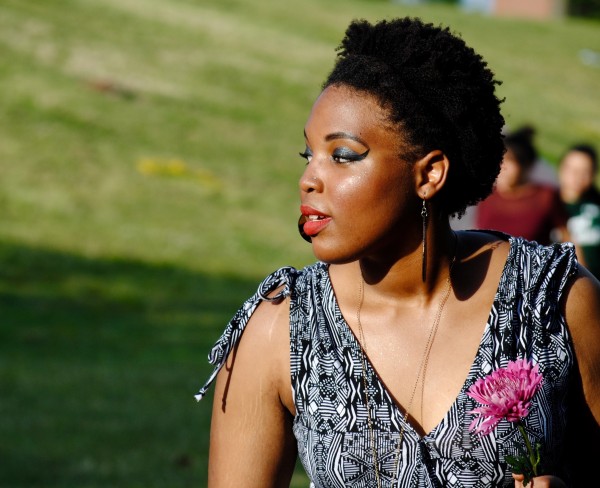
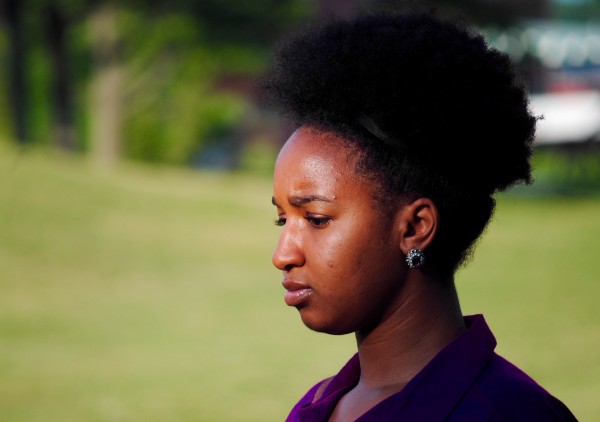
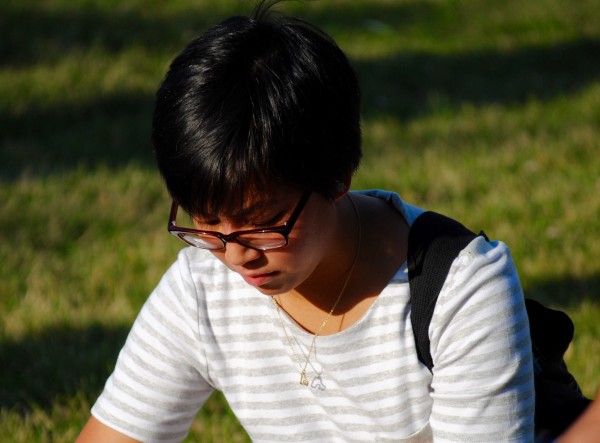
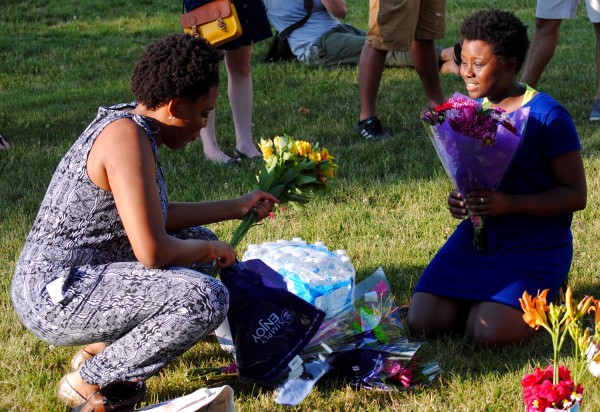
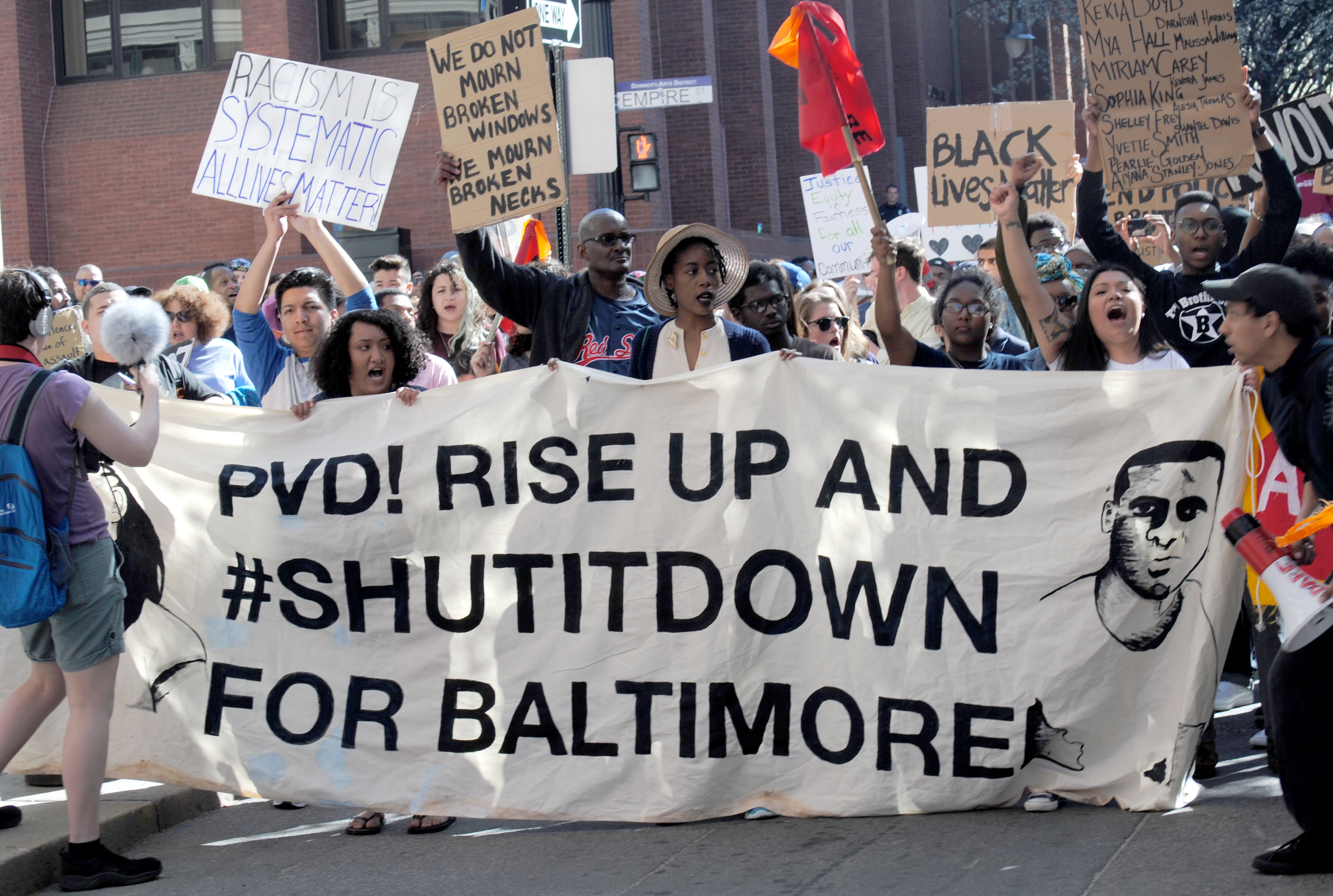
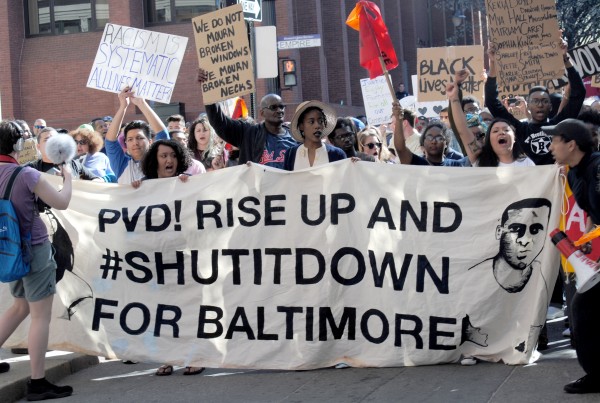
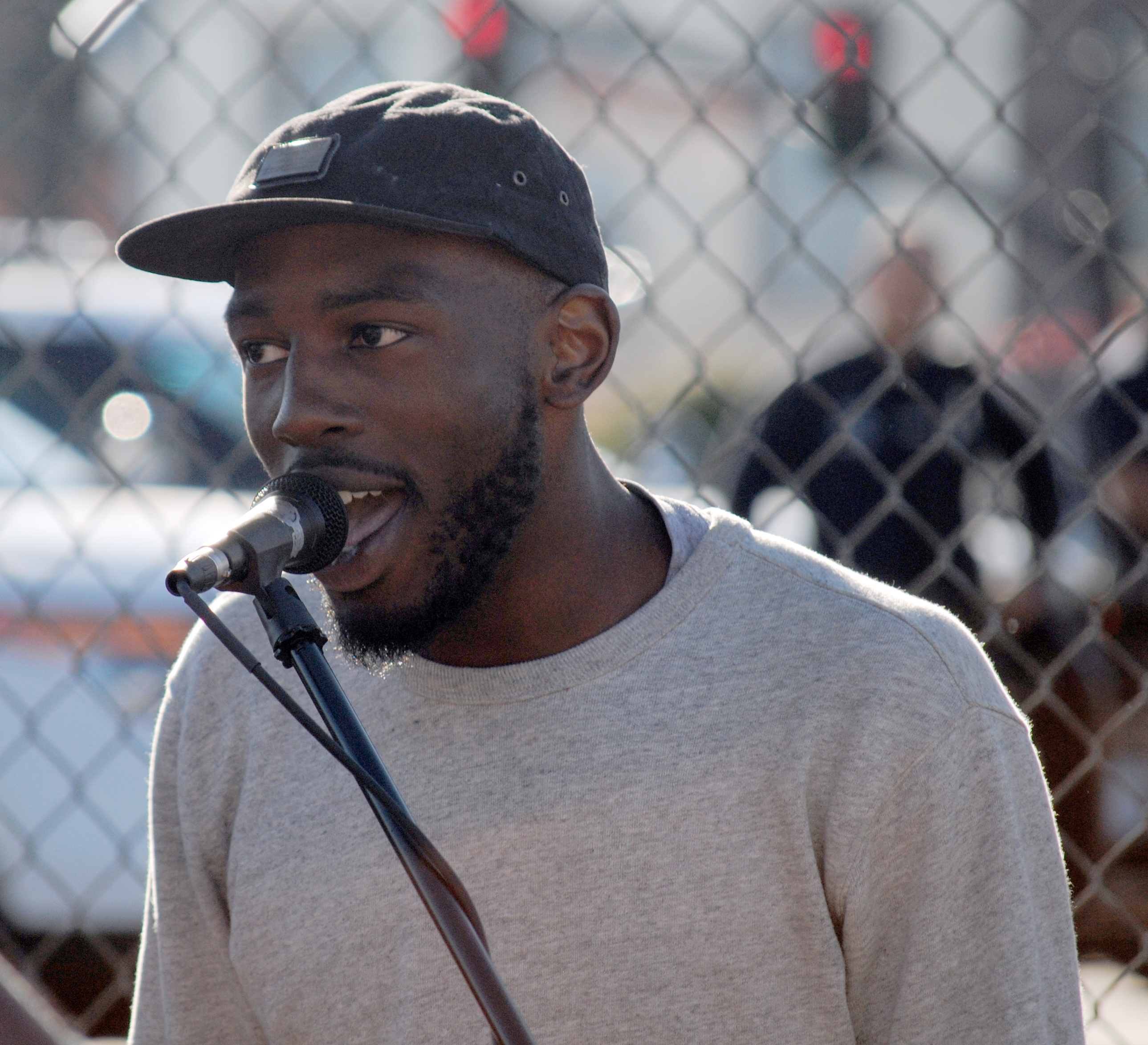
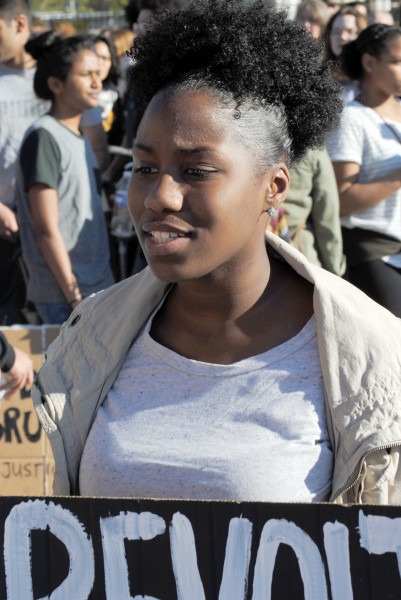 Over 500 people march through the streets of Providence as part of Saturday’s Black Lives Matter march in solidarity with Baltimore. Judging from the enthusiastic and mostly positive response of the people watching or encountering the march, the messaging of the movement is starting to penetrate the general population.
Over 500 people march through the streets of Providence as part of Saturday’s Black Lives Matter march in solidarity with Baltimore. Judging from the enthusiastic and mostly positive response of the people watching or encountering the march, the messaging of the movement is starting to penetrate the general population.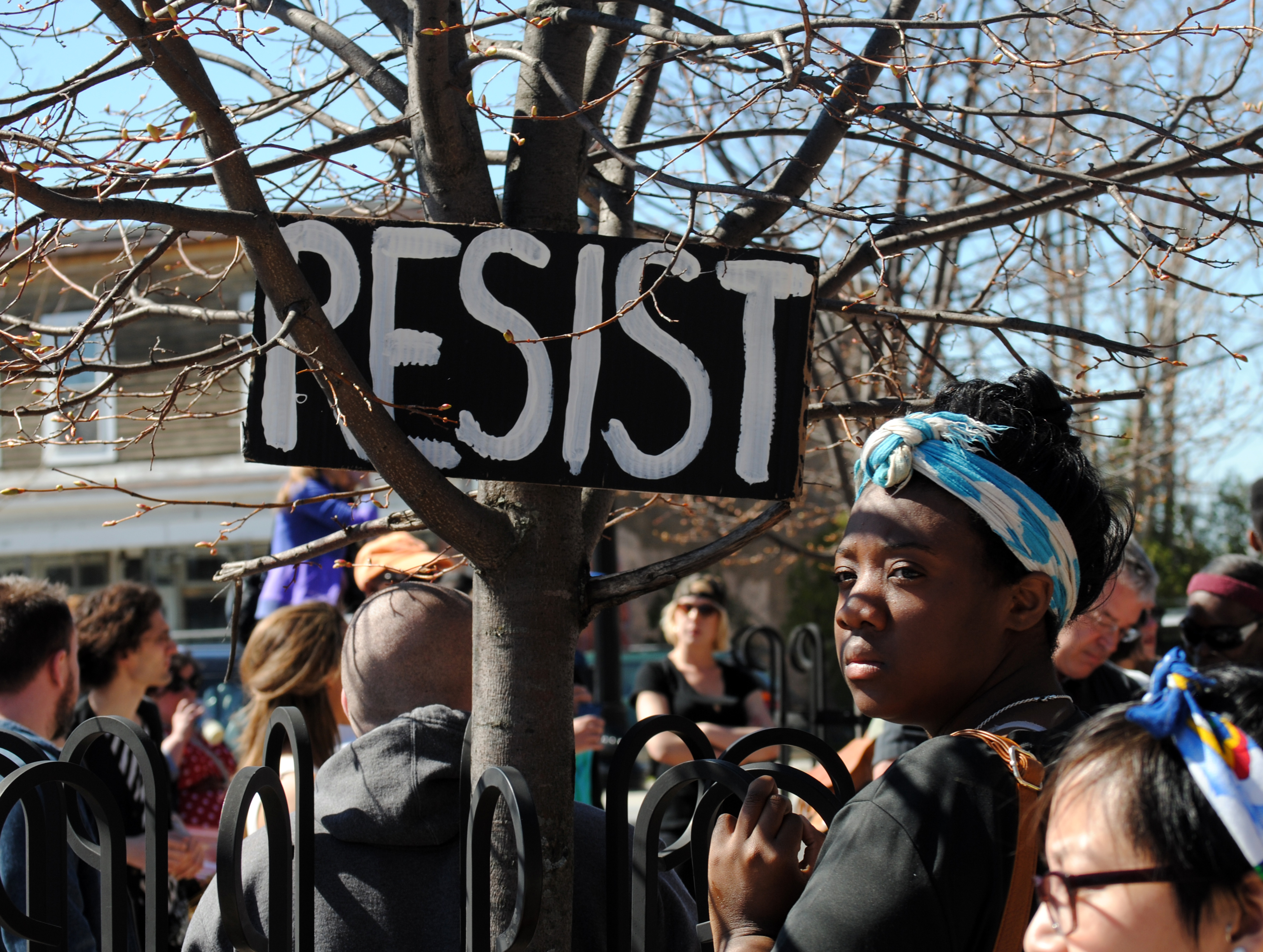
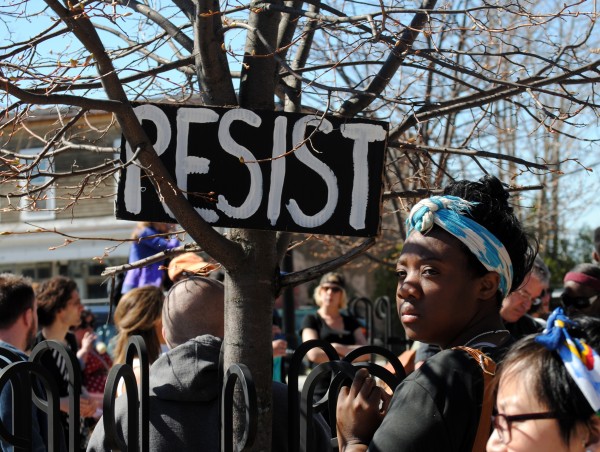 Over 500 people joined the Black Lives Matter march in Providence on Saturday. The event, organized by
Over 500 people joined the Black Lives Matter march in Providence on Saturday. The event, organized by 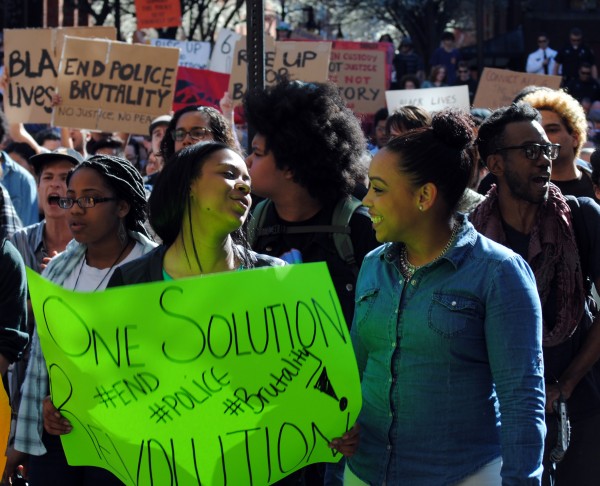 Well over 60 Providence police officers and a fair number of State police flanked the peaceful protest. There were no arrests made. The police were also recording the march, and spent a long time videotaping the marchers through the fence at the press conference held in the DARE parking lot at the end of the march. When the march briefly paused at the Providence Public Safety building, participants were startled to see police officers in full riot gear watching them from the windows.
Well over 60 Providence police officers and a fair number of State police flanked the peaceful protest. There were no arrests made. The police were also recording the march, and spent a long time videotaping the marchers through the fence at the press conference held in the DARE parking lot at the end of the march. When the march briefly paused at the Providence Public Safety building, participants were startled to see police officers in full riot gear watching them from the windows.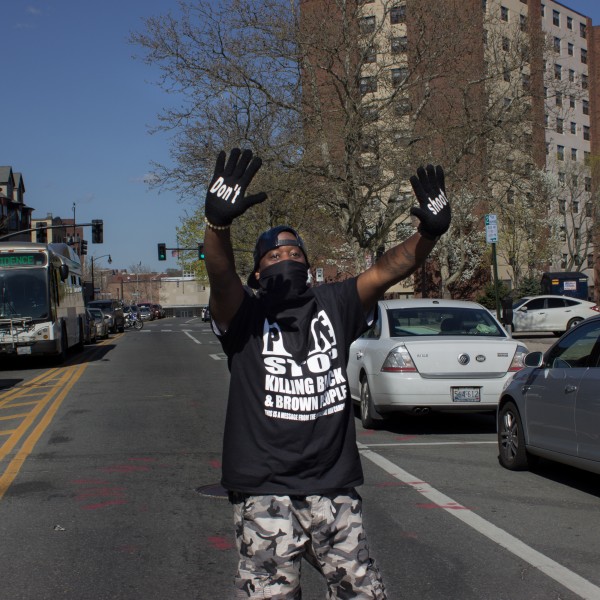
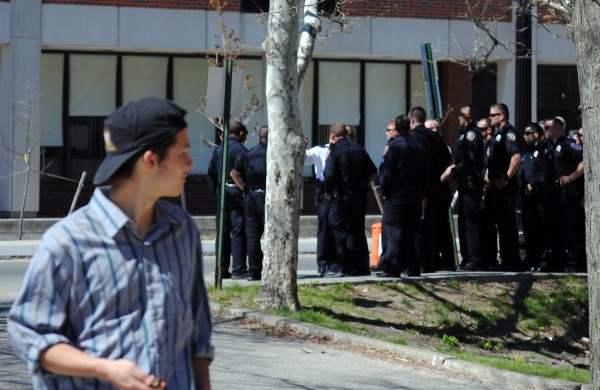
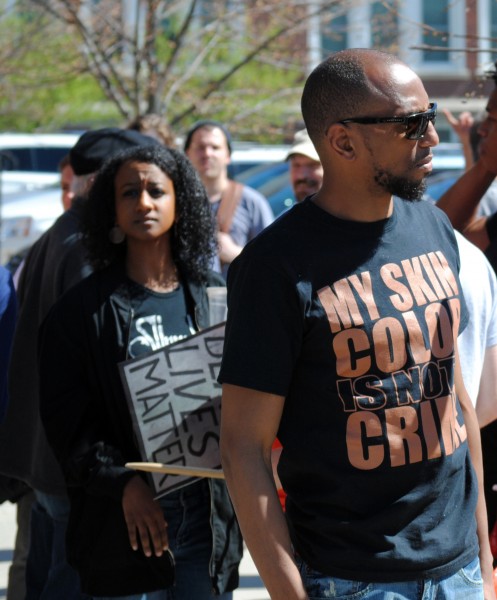
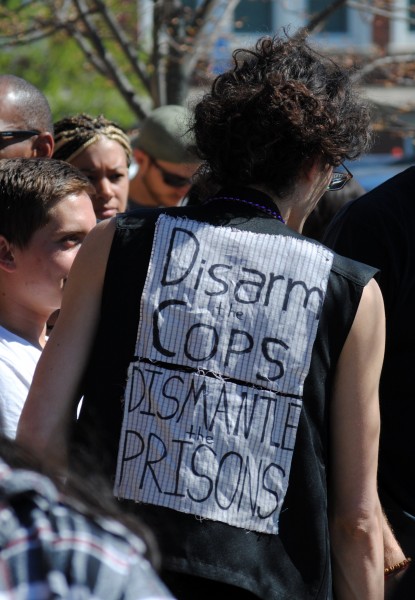
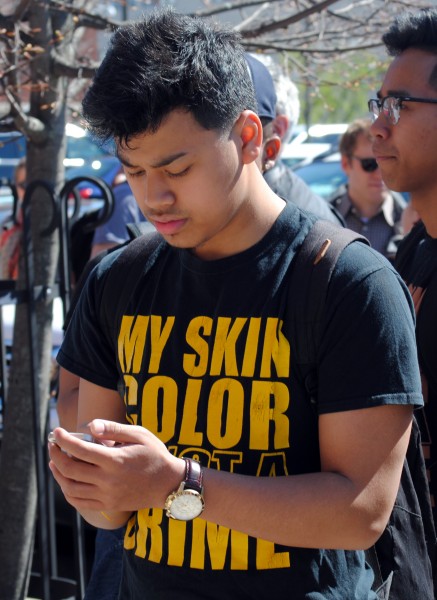

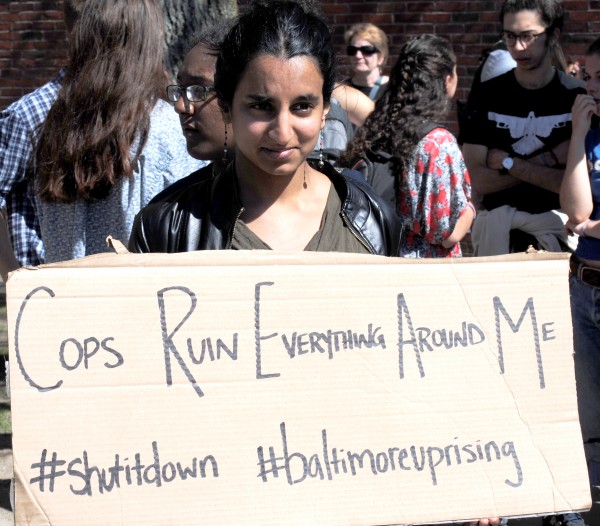
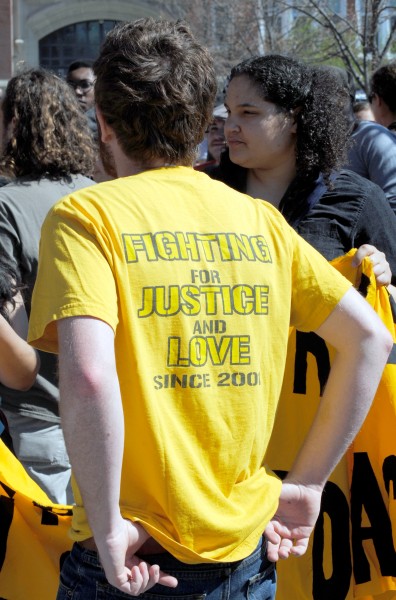
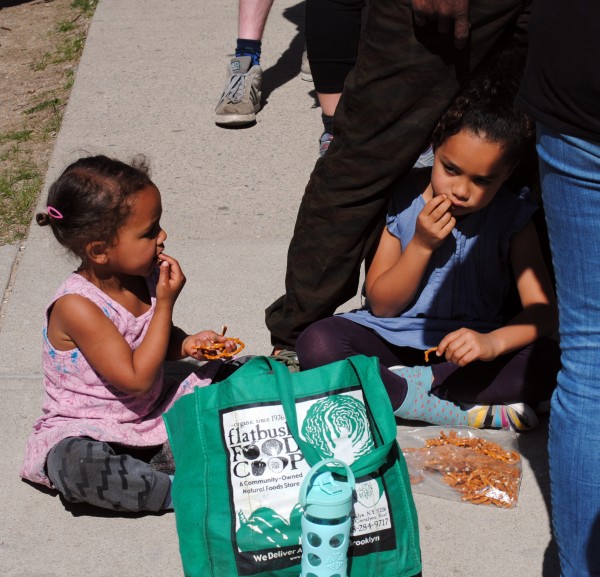
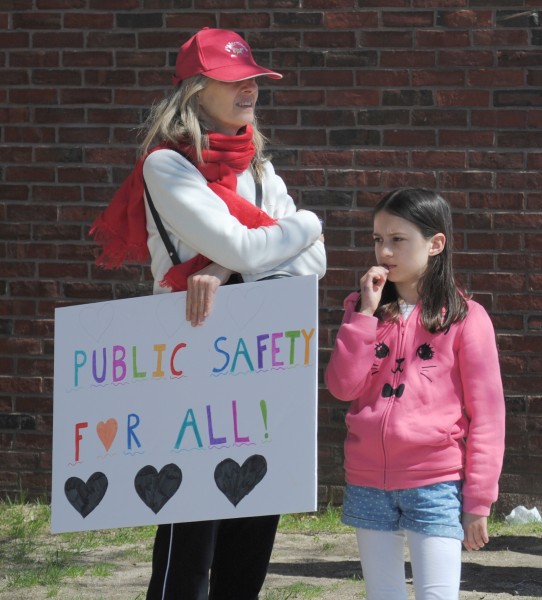
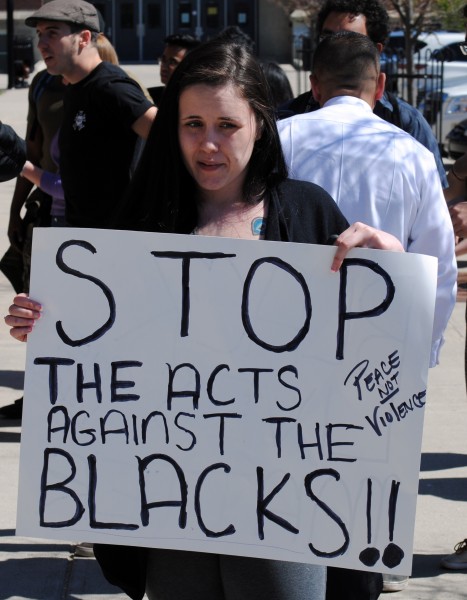
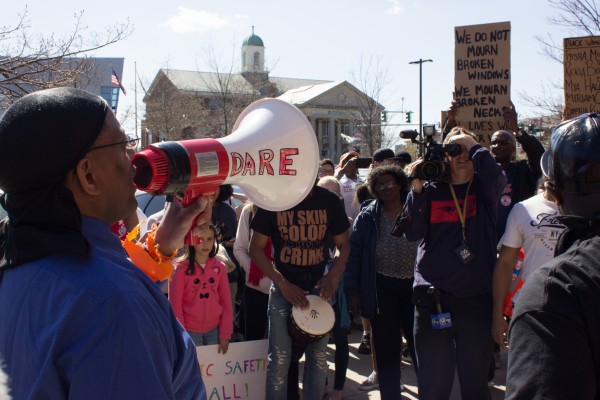
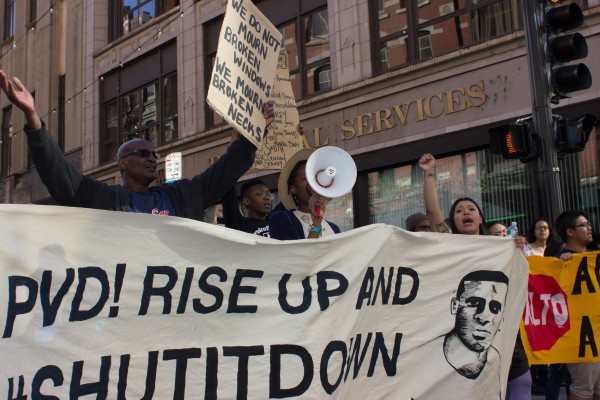
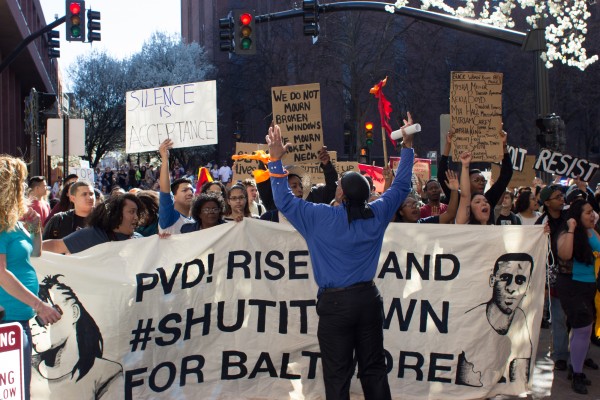
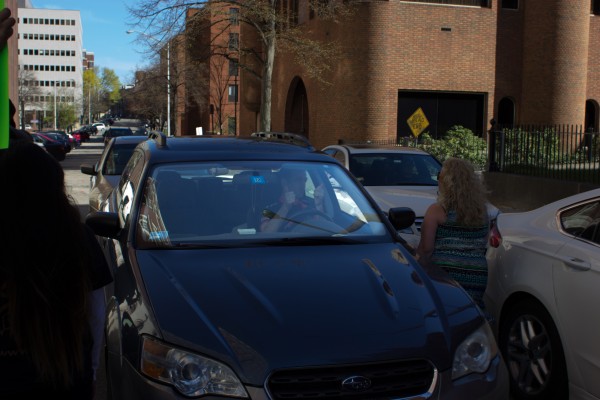
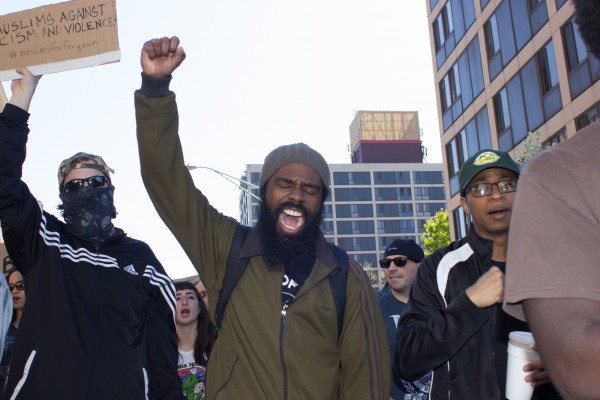

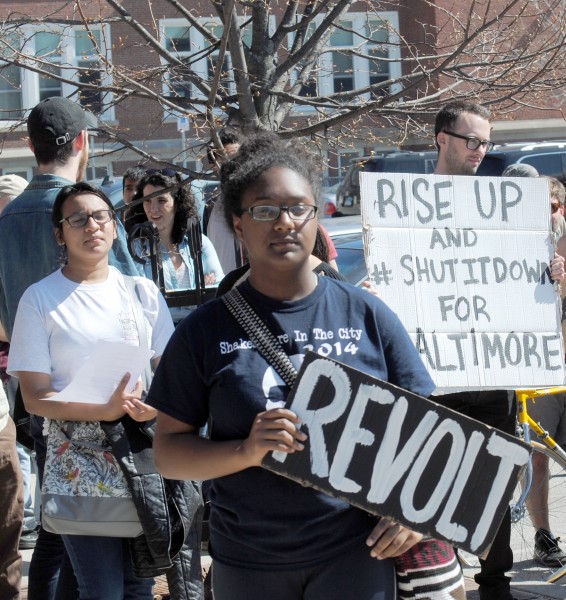
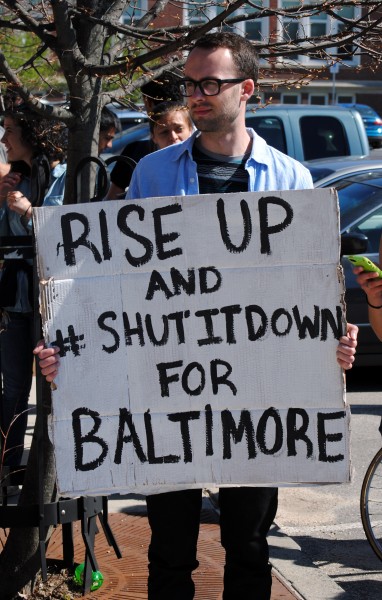
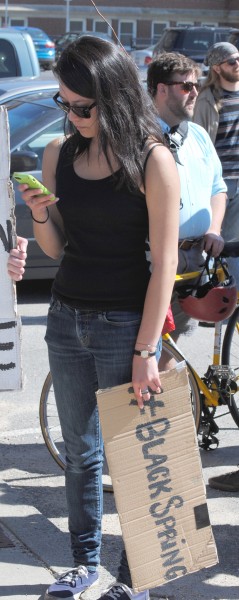

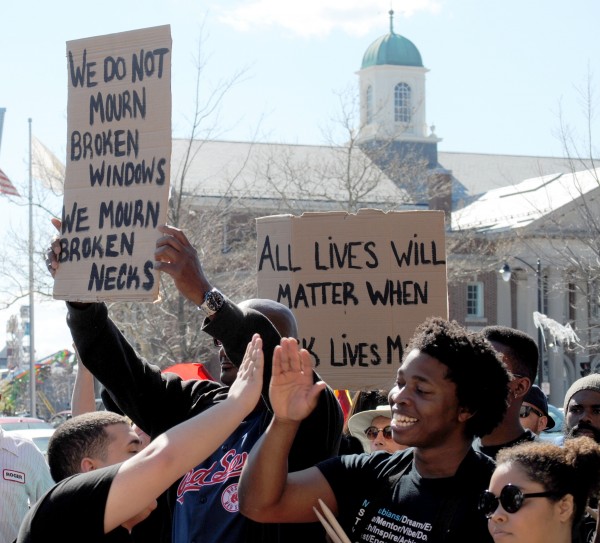
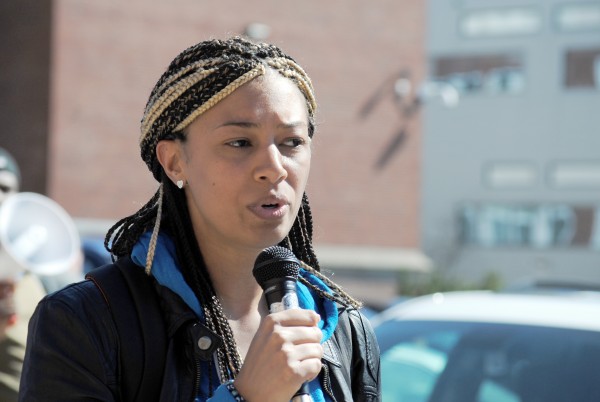
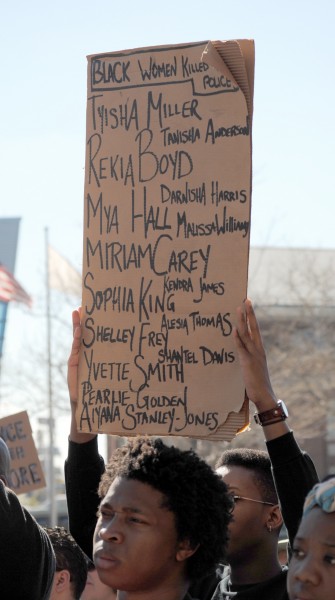
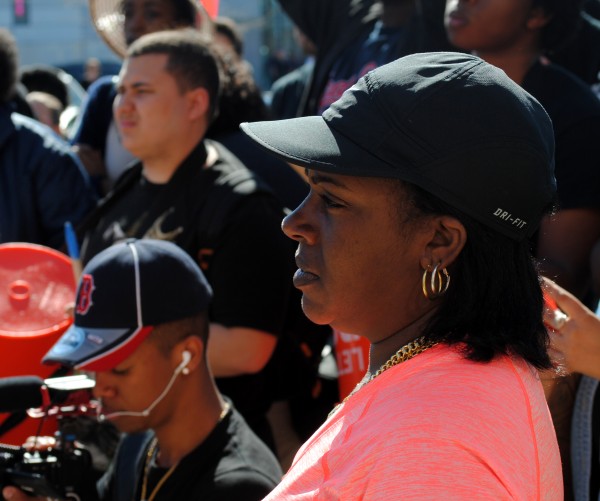
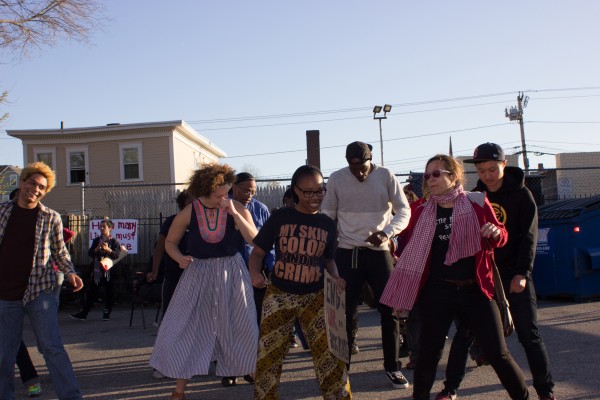
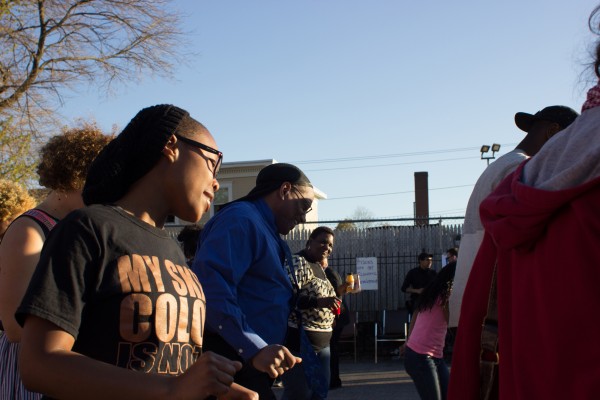
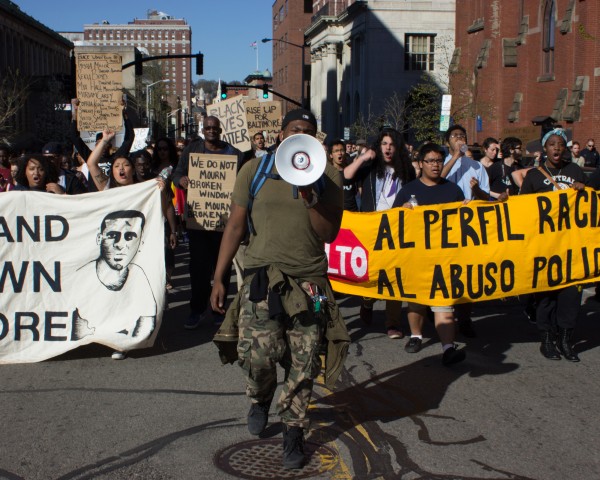
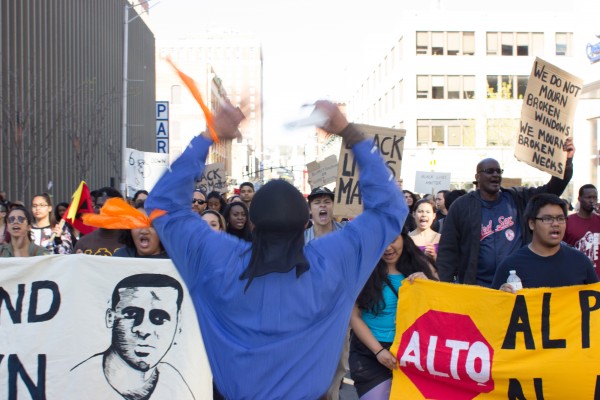
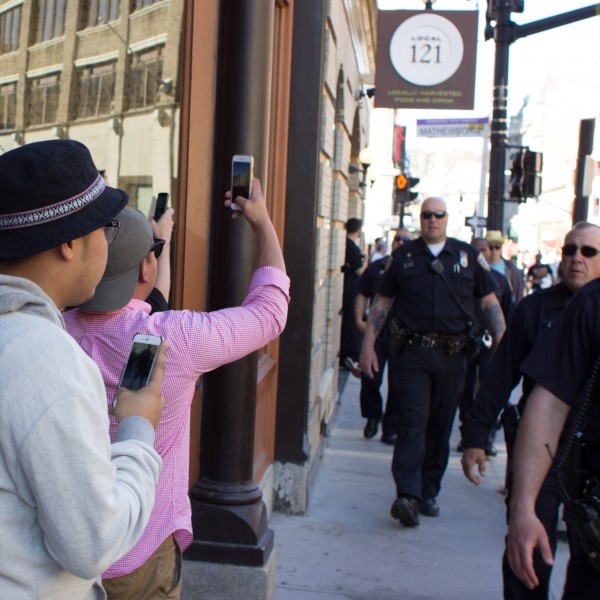
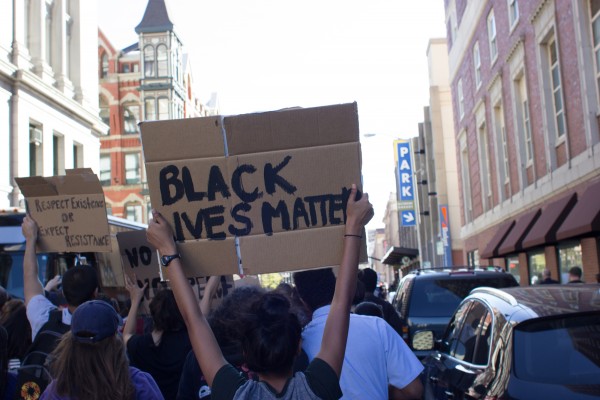
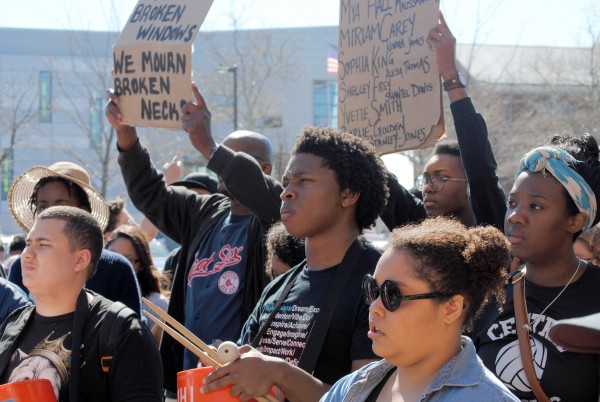
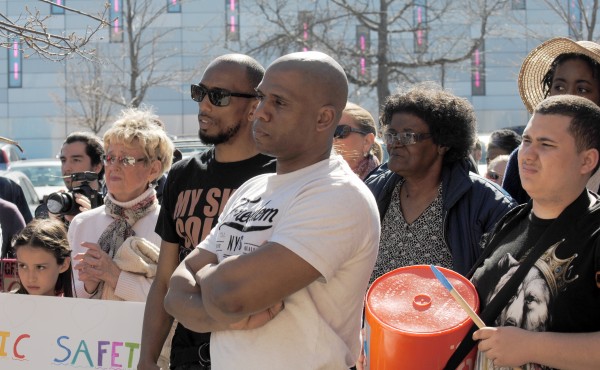
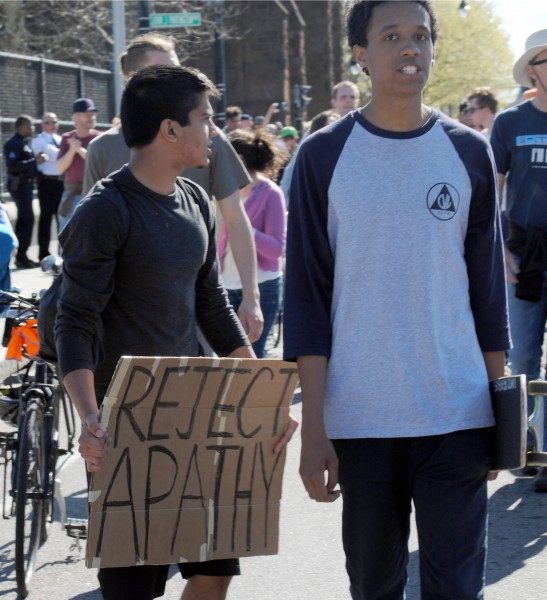
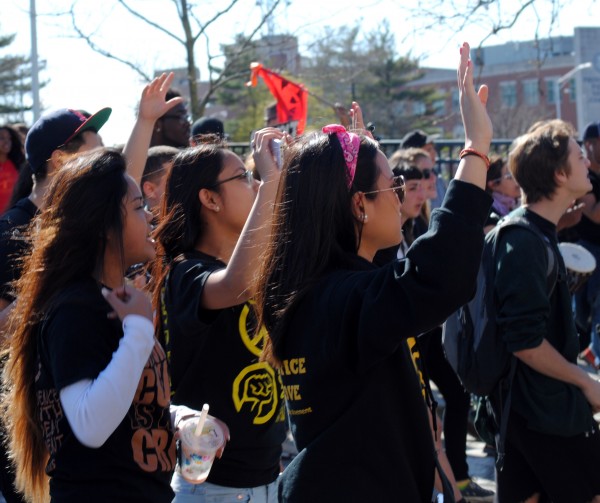
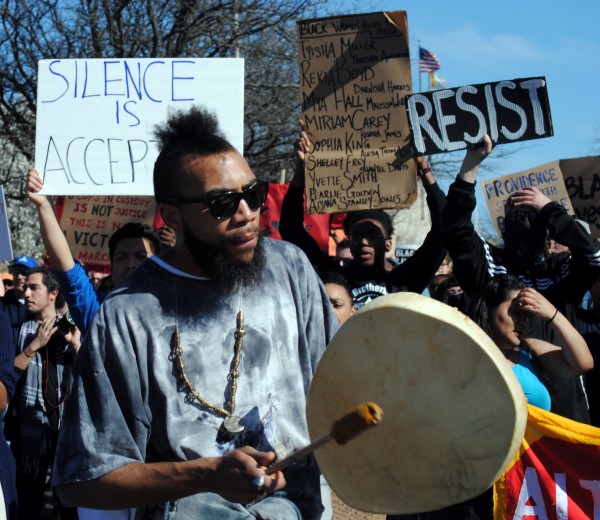

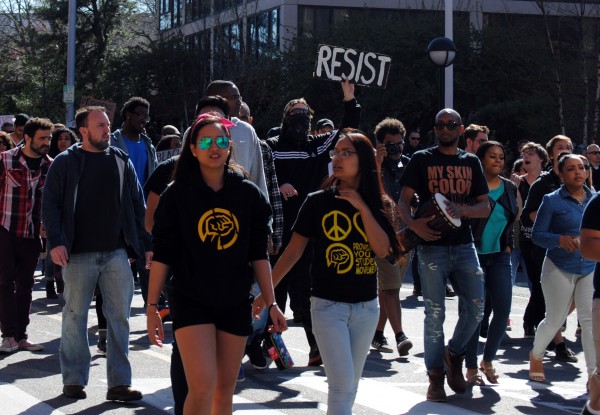
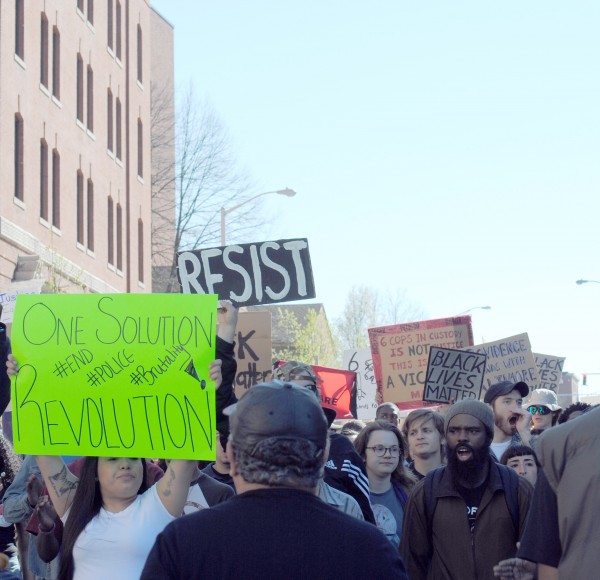
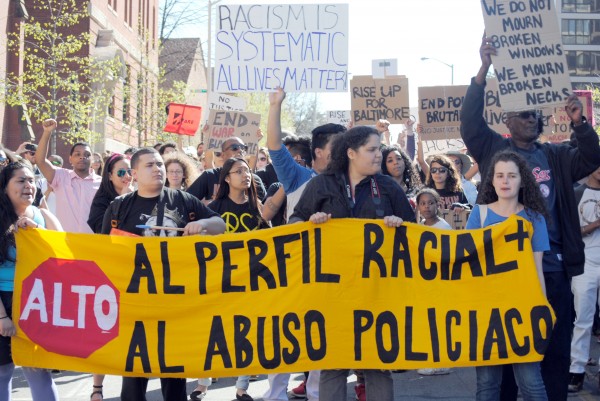
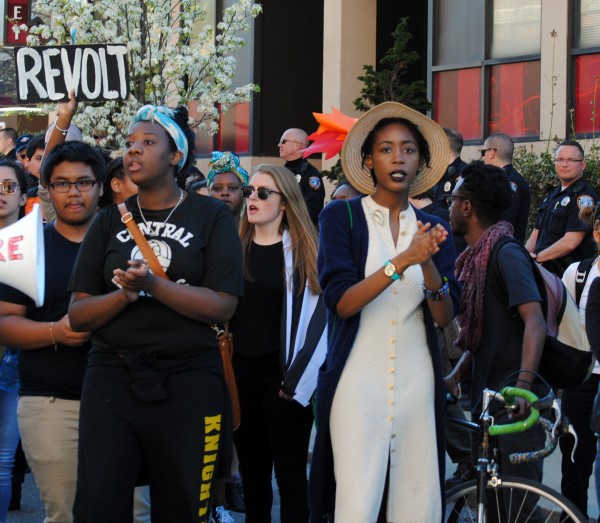

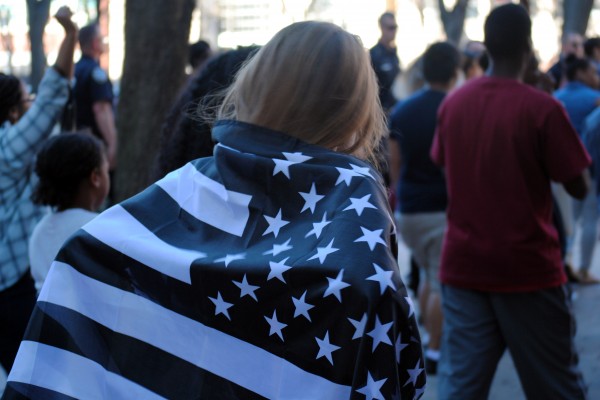
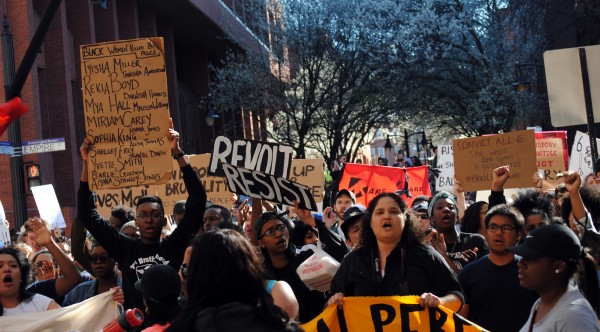
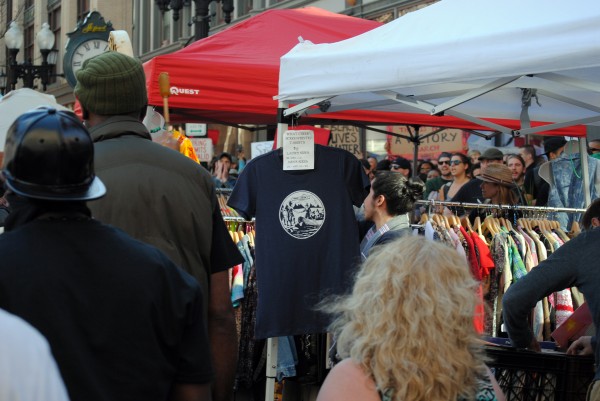
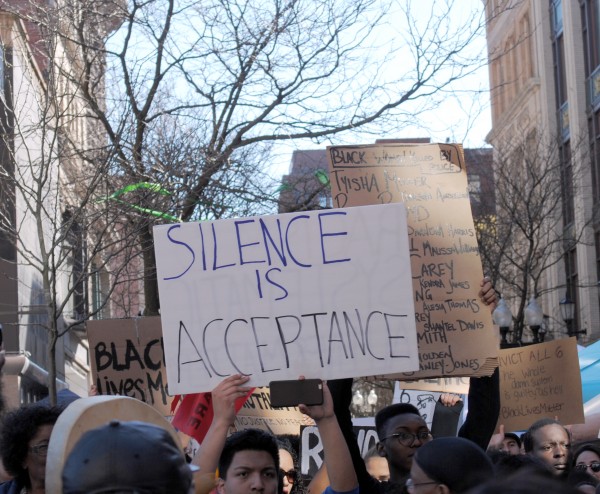
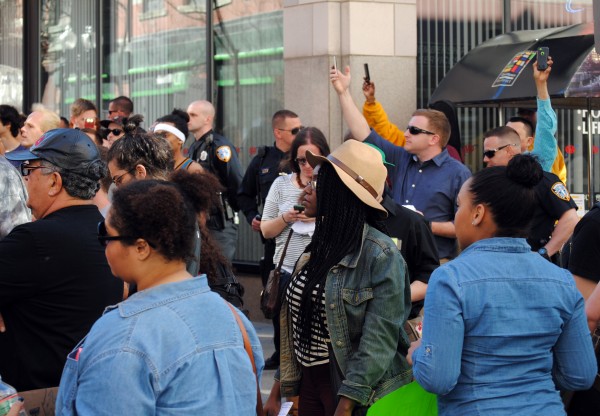
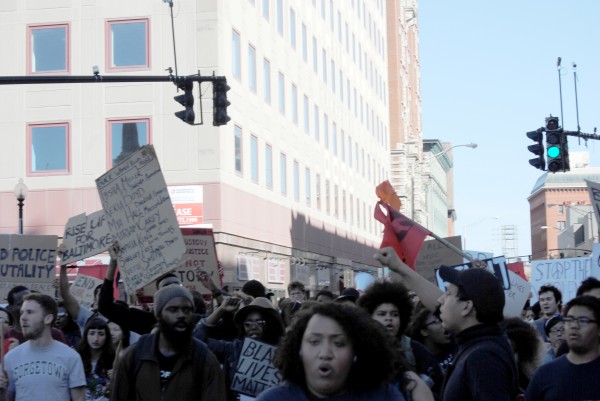

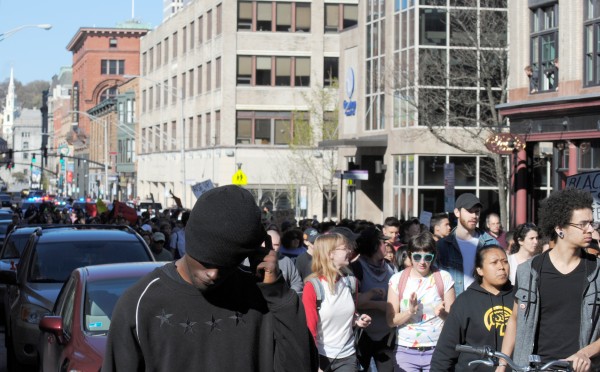
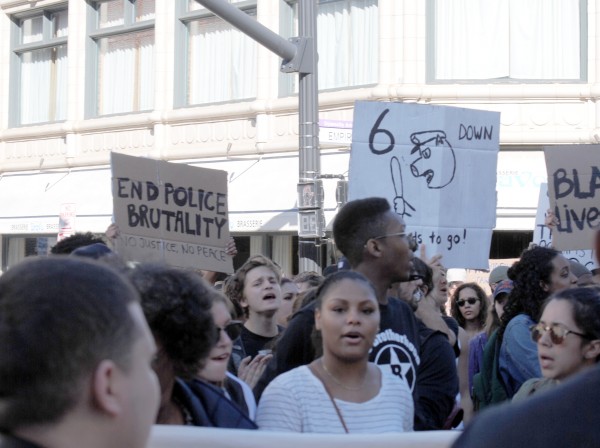
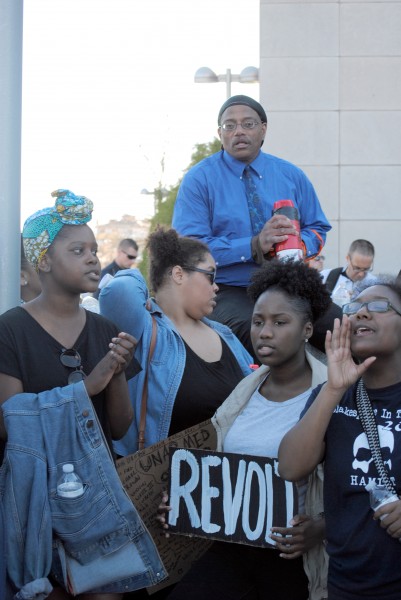
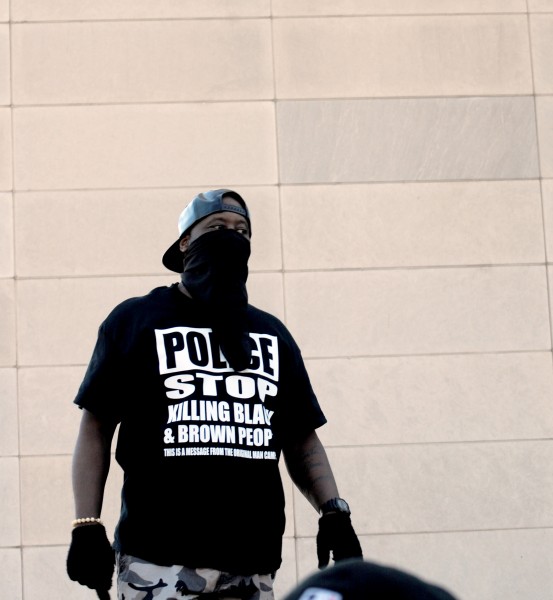
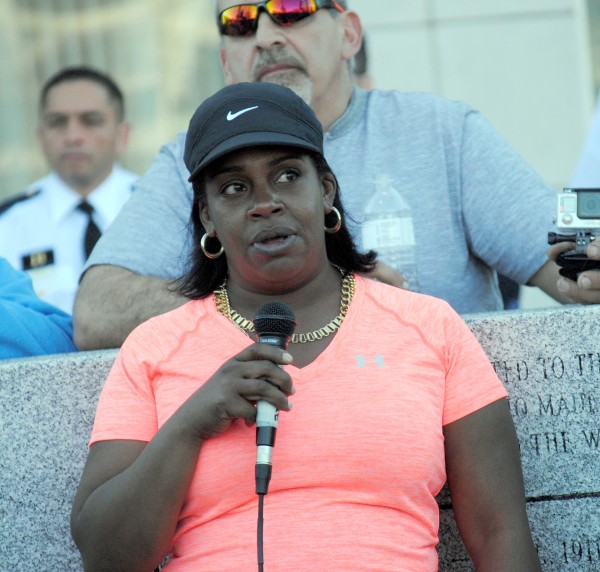
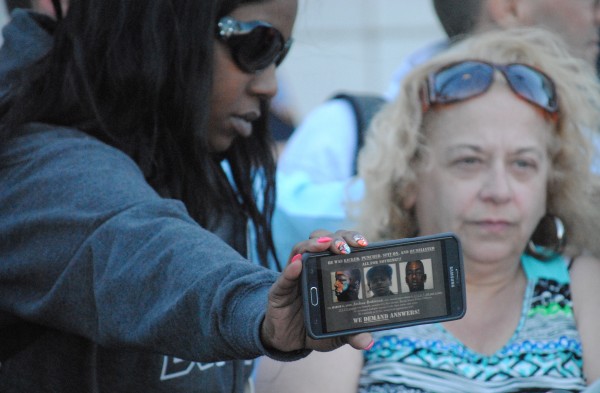
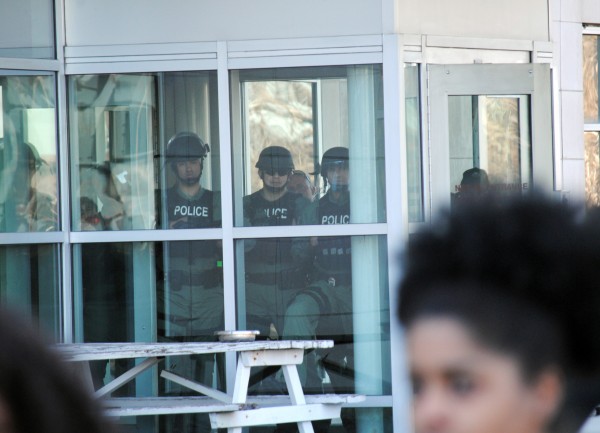
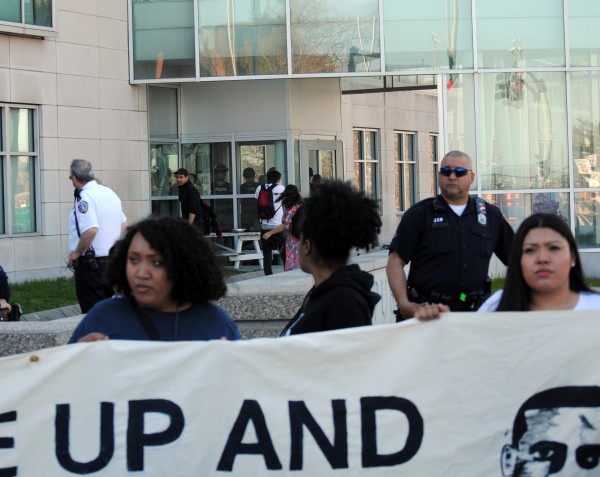

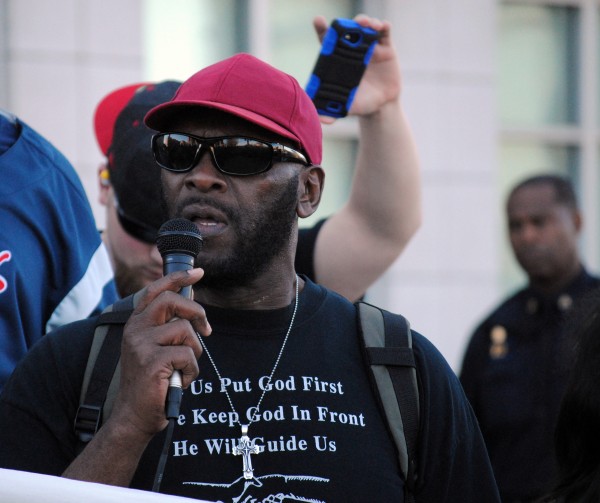
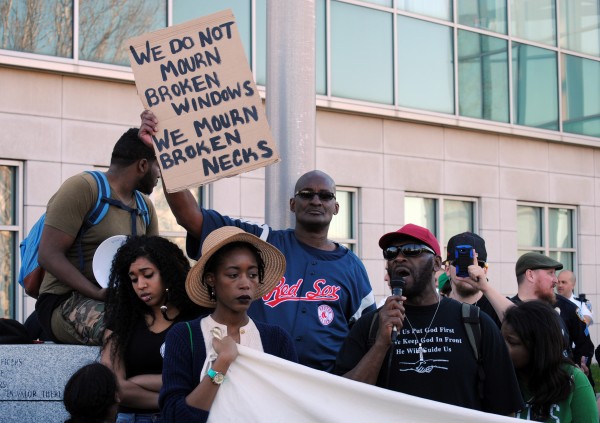
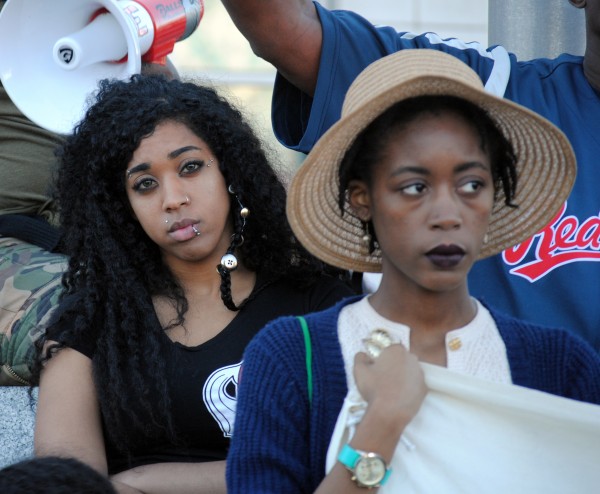
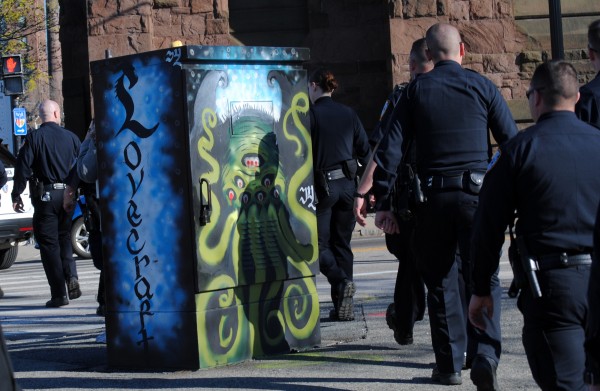
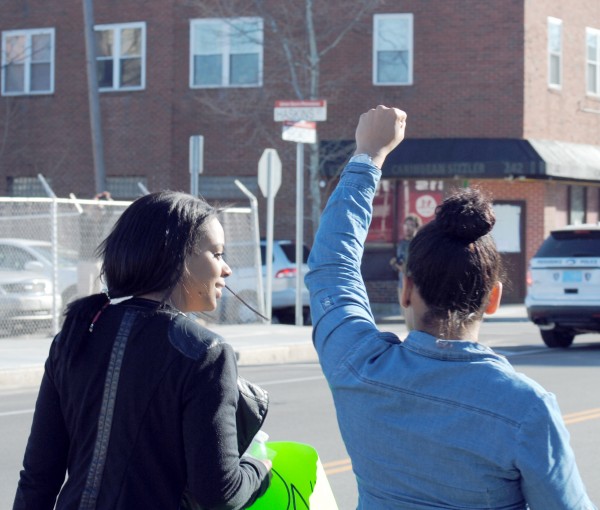

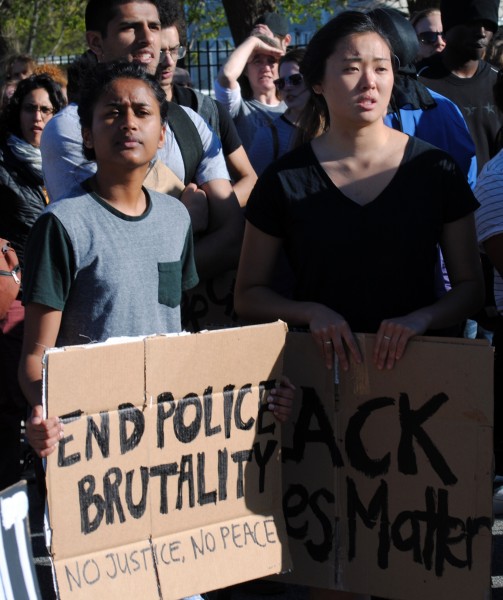
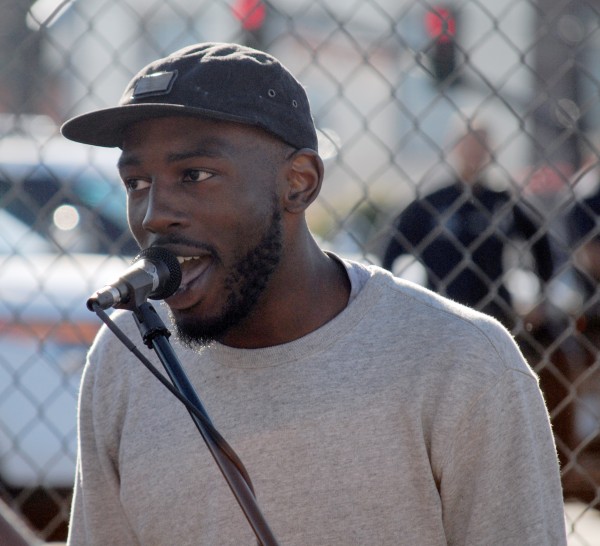
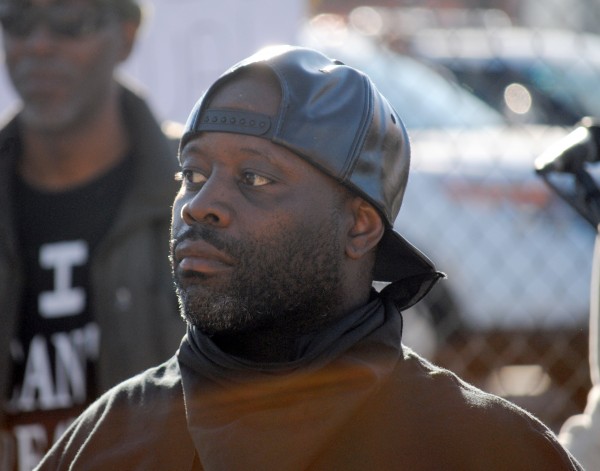

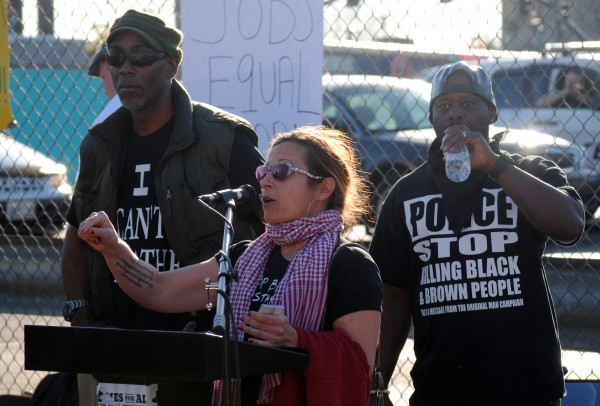
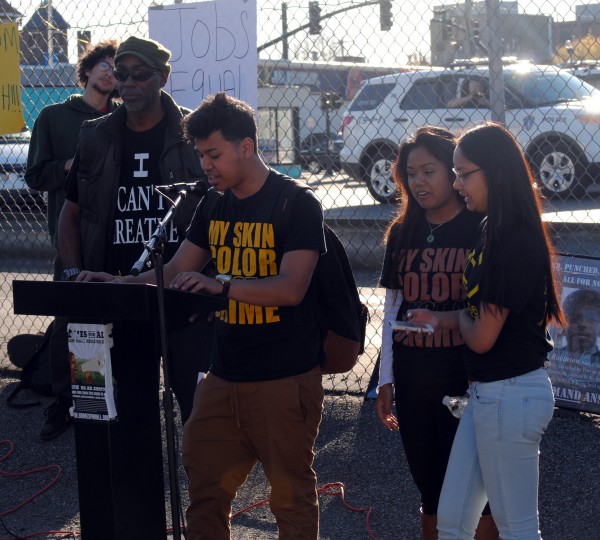
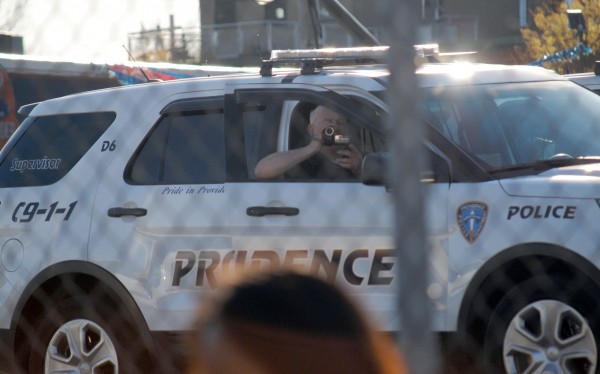
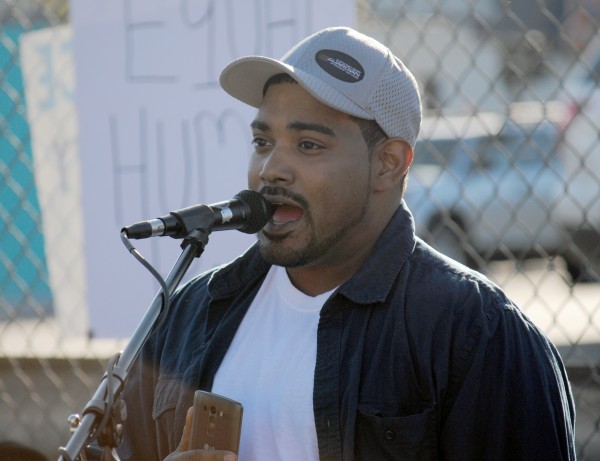
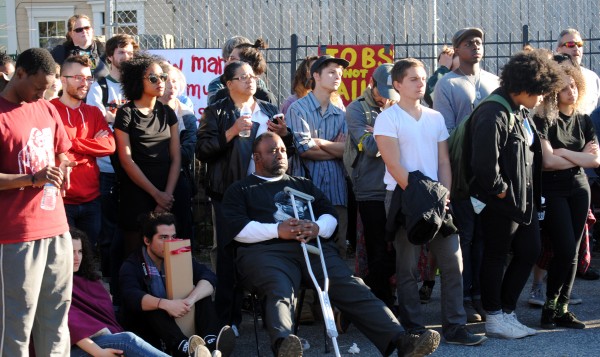
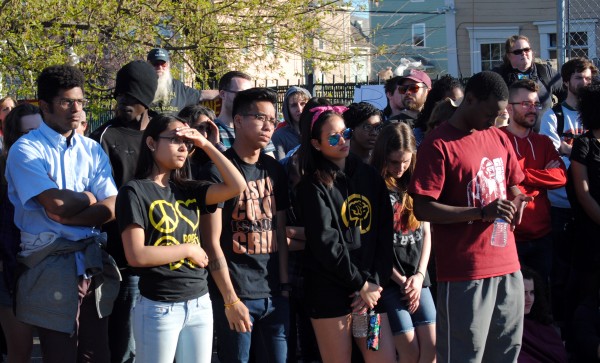
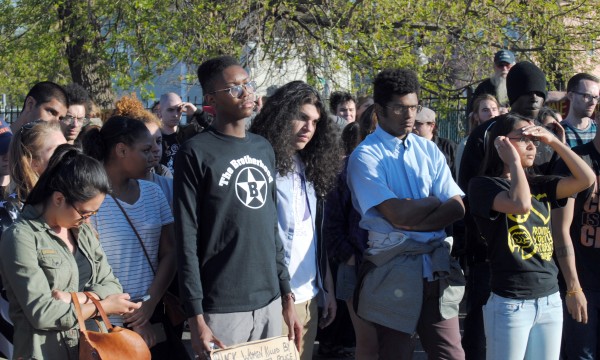

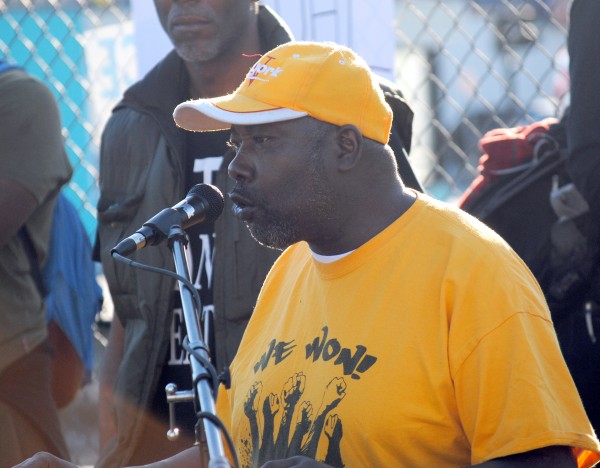
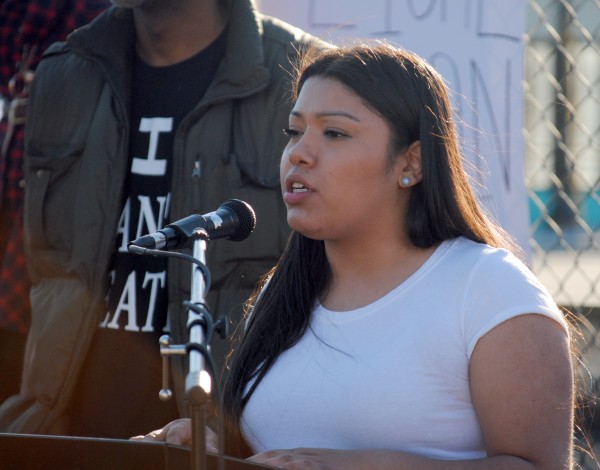
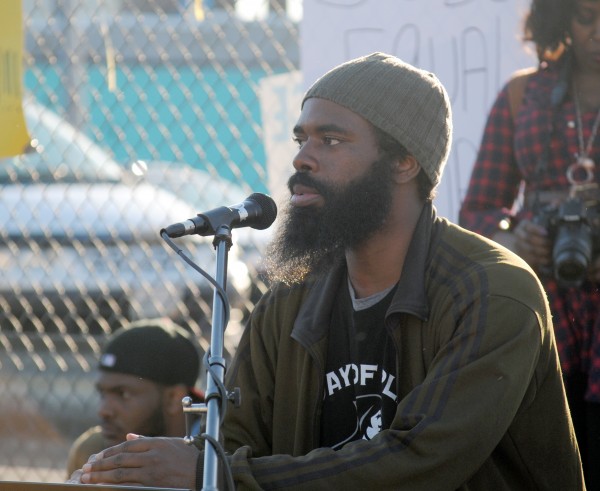
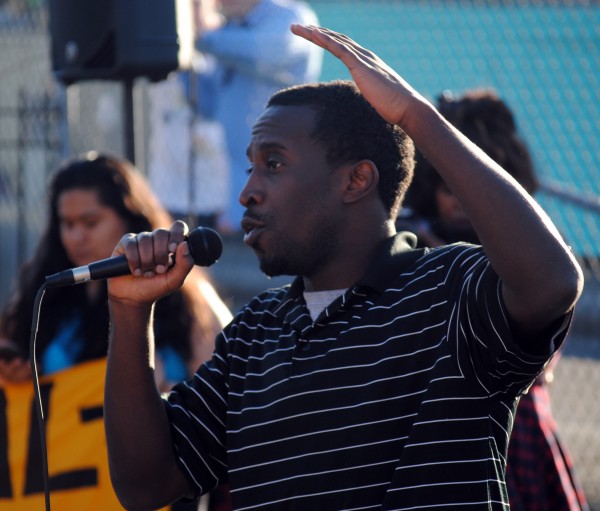
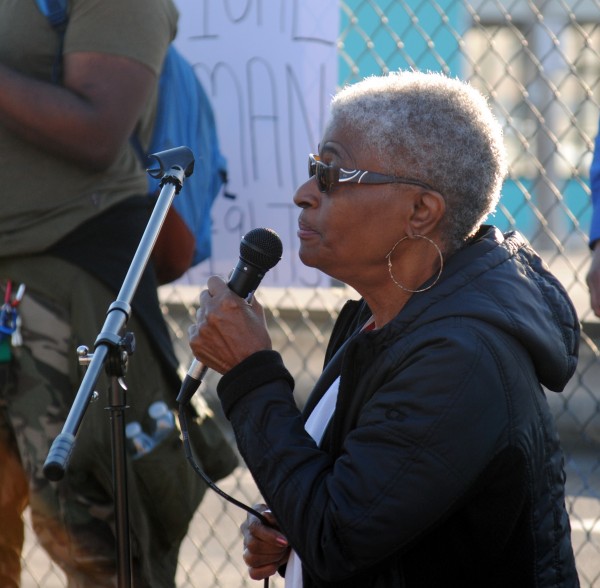
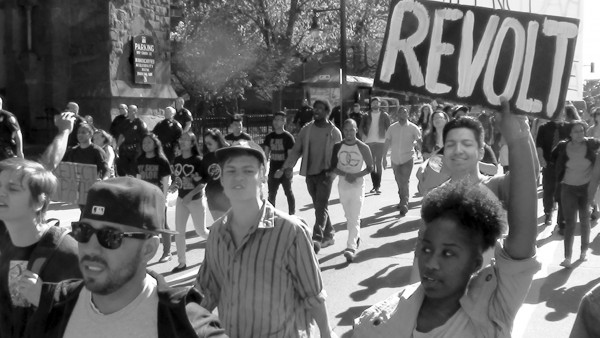
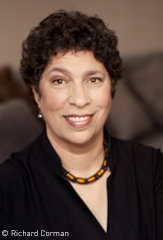
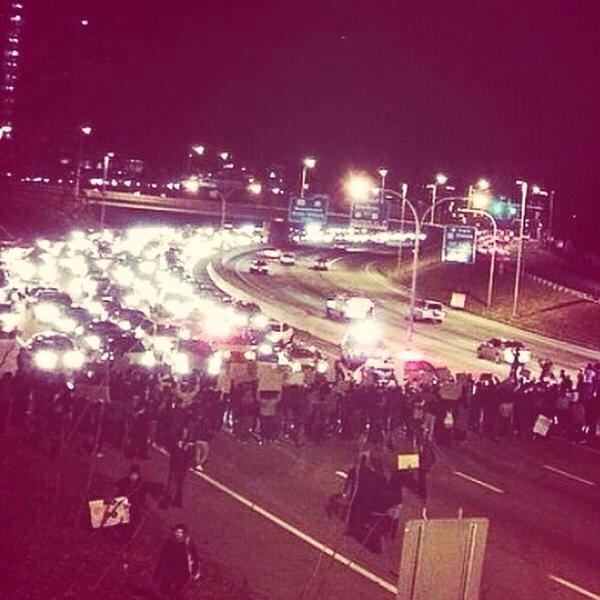
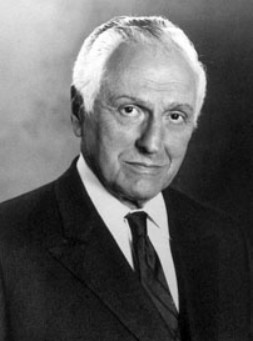
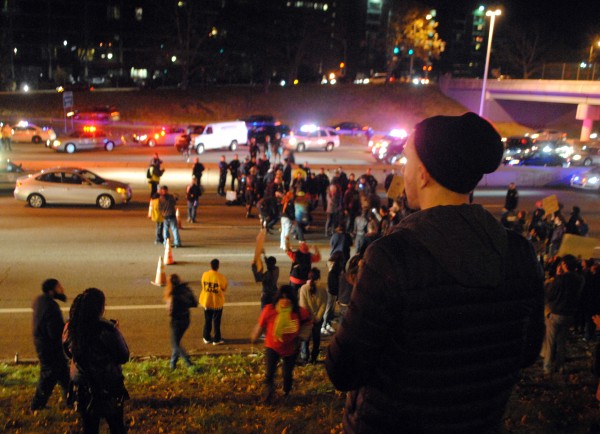
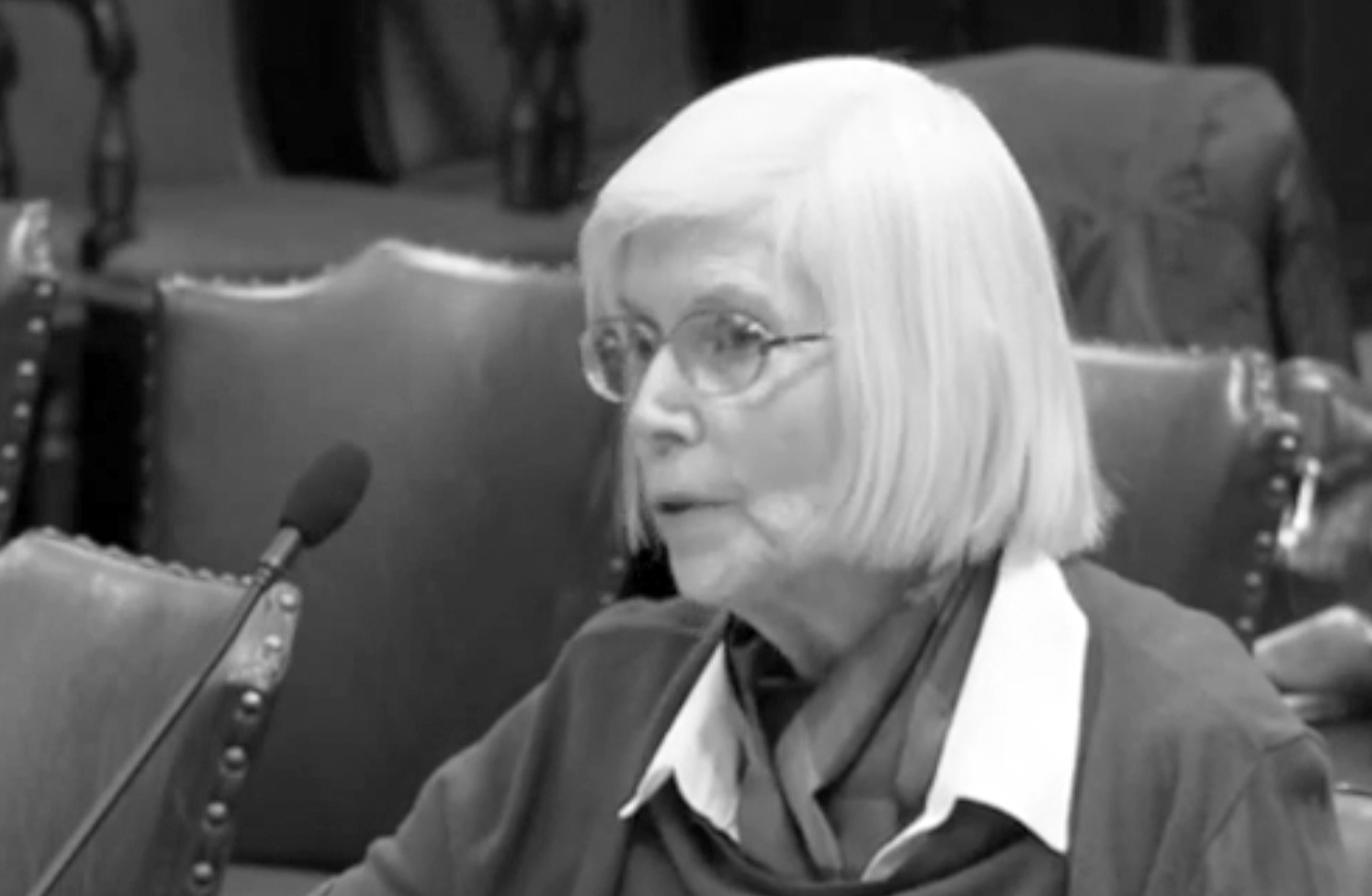
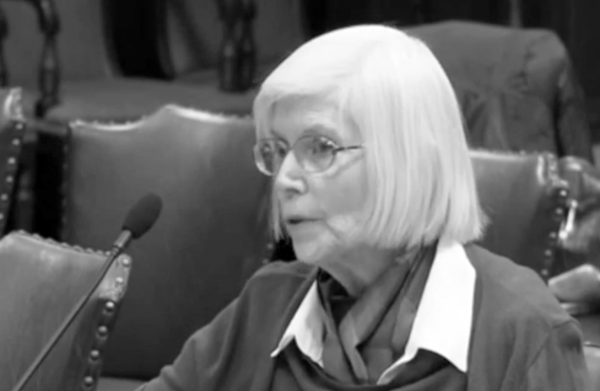
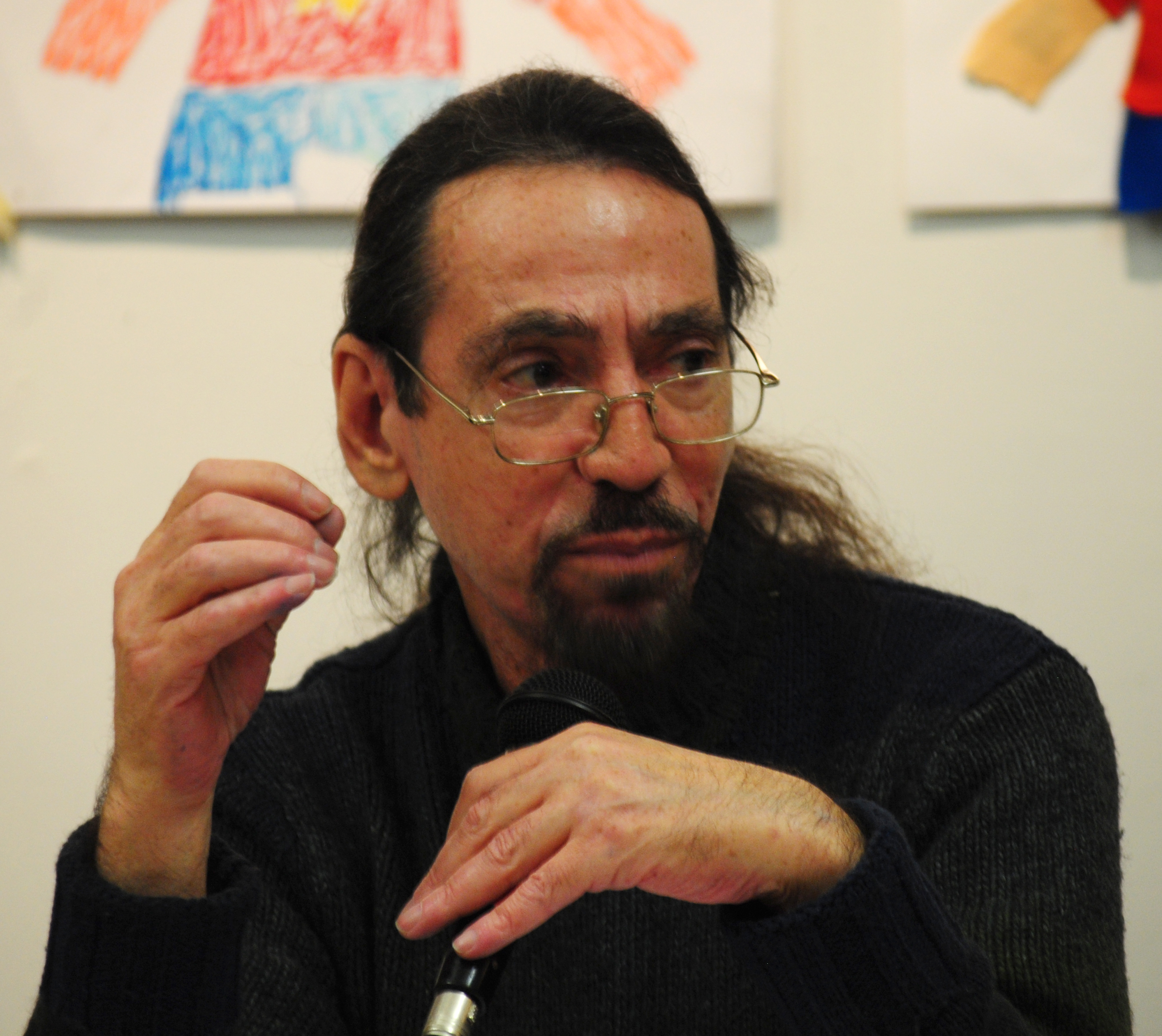
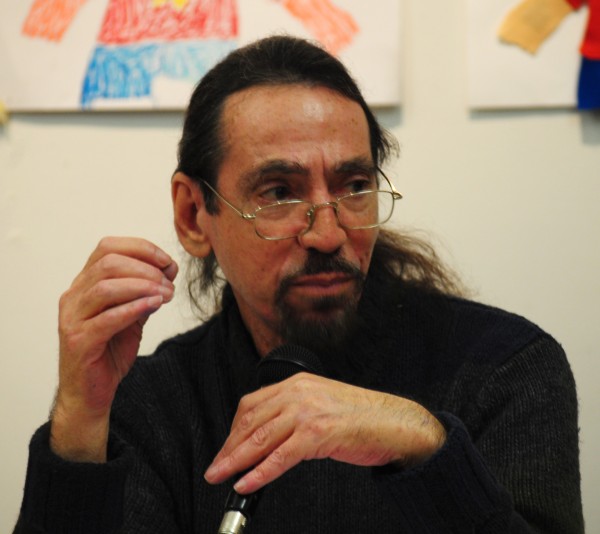
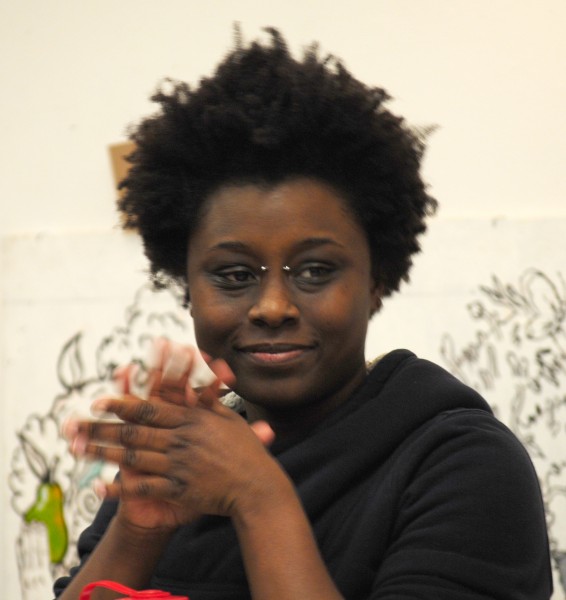
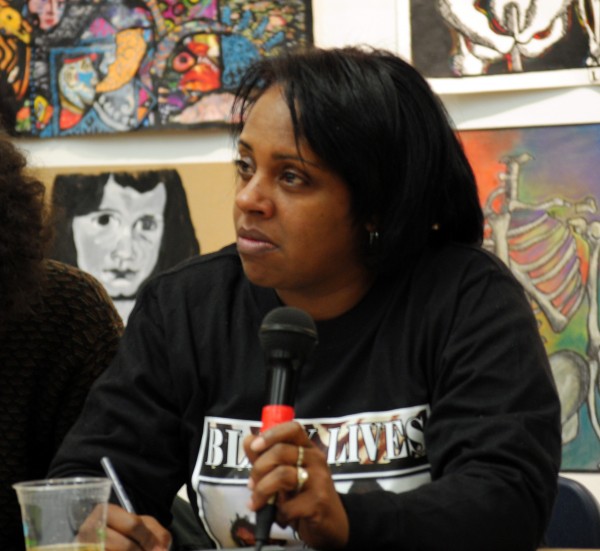
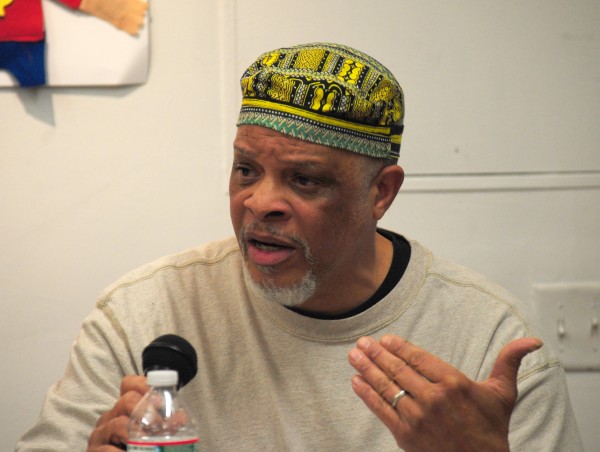
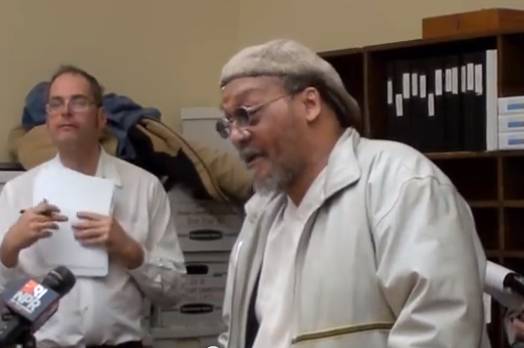
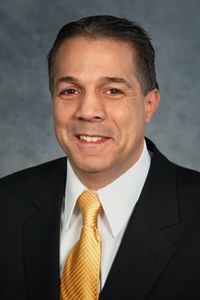
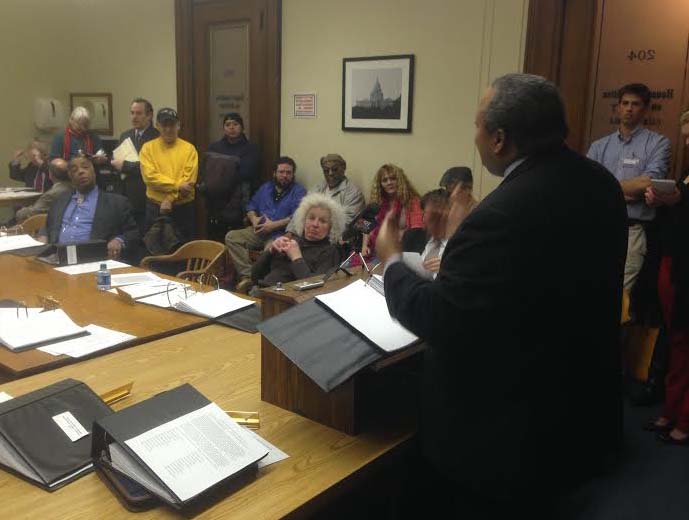
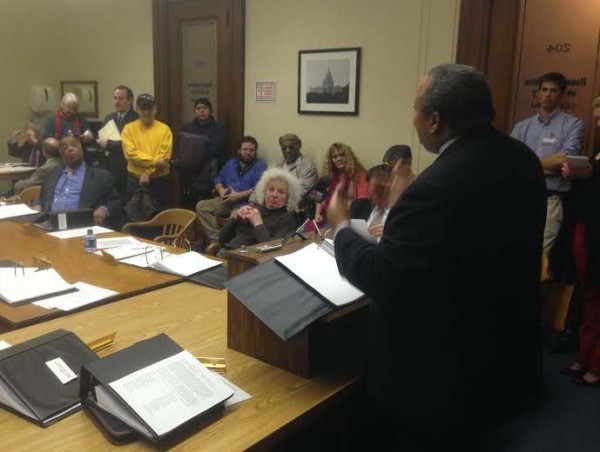 Even the House sponsor of
Even the House sponsor of 
